Faculty: MS in Data Science Program
Thomas W. Miller
Faculty Director
 Tom Miller is the faculty director of the data science program at Northwestern University. He started with the program in 2011 when it was called predictive analytics and has been responsible for growing the curriculum, introducing specializations, and designing numerous distance learning courses. Miller is the author of six textbooks about data science published by Pearson Education. He also owns Research Publishers LLC, a California book publisher and provider of research and consulting services.
Tom Miller is the faculty director of the data science program at Northwestern University. He started with the program in 2011 when it was called predictive analytics and has been responsible for growing the curriculum, introducing specializations, and designing numerous distance learning courses. Miller is the author of six textbooks about data science published by Pearson Education. He also owns Research Publishers LLC, a California book publisher and provider of research and consulting services.
Miller holds a master’s degree in statistics and a PhD in psychology (psychometrics) from the University of Minnesota, as well as an MBA and an MS in economics from the University of Oregon. He also holds the Certificate in Quantitative Finance from CQF Institute, Fitch Learning, London.
Miller is known for his studies of prediction markets and election forecasting, documented under The Virtual Tout®.
Contact Information
Education
PhD in Psychology (Psychometrics), University of Minnesota
MS in Statistics, University of Minnesota
MBA, University of Oregon
MS in Economics, University of Oregon
Relevant Work
Northwestern University, Evanston, Illinois (June 2011–Present) School of Professional Studies, Assistant Professor of Instruction Faculty Director, Data Science Program
Research Publishers LLC, Manhattan Beach, California Owner (September 2002–Present)
Editor-in-Chief, Data Science Quarterly (October 2020–Present)
Pearson Education, New York (2014–2016) Consulting Editor, Practical Data Science
Union Cab Cooperative of Madison, Wisconsin (August 2007–August 2012) Member/owner of worker cooperative
Madison College, Madison, Wisconsin (August 2006–December 2011) Adjunct Faculty, Instructor
University of Wisconsin, Madison, Wisconsin (August 1995–June 2003)
Director, A.C. Nielsen Center for Marketing Research (January 1999–June 2003)
Faculty Associate, Marketing Department (January 1999–June 2003) Lecturer, Marketing Department (August 1995–December 1998)
Selected Publications and Products
Miller, Thomas W. 2020. “Measurement, Meaning, and Prediction in Sports,” In C. Ley and Y. Dominicy (eds.), Science Meets Sports: When Statistics are More than Numbers, Cambridge, U.K.: Cambridge Scholars Publishing.
Miller, Thomas W. 2016. Sports Analytics and Data Science: Winning the Game with Methods and Models, Old Tappan, N.J.: Pearson Education/FT Press.
Miller, Thomas W. 2015. Marketing Data Science: Modeling Techniques in Predictive Analytics with R and Python, Upper Saddle River, N.J.: Pearson Education/FT Press.
Miller, Thomas W. 2015. Web and Network Data Science: Modeling Tech- niques in Predictive Analytics, Upper Saddle River, N.J.: Pearson Education/FT Press.
Miller, Thomas W. 2015. Modeling Techniques in Predictive Analytics with Python and R: A Guide to Data Science, Upper Saddle River, N.J.: Pearson Education/FT Press.
Miller, Thomas W. 2015. Modeling Techniques in Predictive Analytics: Busi- ness Problems and Solutions with R (Revised and Expanded Edition), Upper Saddle River, N.J.: Pearson Education/FT Press.
Miller, Thomas W. 2014. Modeling Techniques in Predictive Analytics: Busi- ness Problems and Solutions with R, Upper Saddle River, N.J.: Pearson Education/FT Press.
Miller, Thomas W. 2005.
Data and Text Mining: A Business Applications Approach, Upper Saddle River, N.J.: Pearson Education/Prentice Hall.
Recognition
Tully, Shawn. How a data scientist beat the polls by nailing the Georgia senate race. Fortune, January 9, 2021. https://fortune.com/2021/01/09/data-science-polling-us-senate-race/
David K. Hardin Award, American Marketing Association, Best article in
Marketing Research, “Can We Trust the Data of Online Research?” (2001)
Recent Courses
MSDS 453 Natural Language Processing
MSDS 459 Knowledge Engineering
MSDS 460 Decision Analytics
MSDS 411 Unsupervised Learning Methods
Teaching Approach and Philosophy
Abid Ali
 Abid Ali has worked in consulting and product companies over the years. He has several years of international consulting experience leading, designing, and delivering large-scale data and reporting solutions in the U.S., Great Britain, Europe, and Asia Pacific. He is experienced in various industries such as retail, insurance, finance, banking, telecom, and travel. He specializes in data architecture design and implementation, data warehousing and business intelligence, and advanced analytics. He is a perpetual learner and has acquired multiple advanced degrees over the years and several certifications. He also teaches in the Master of Analytics program at University of Chicago and has taught at Columbia University in their Master of Applied analytics program. He delivers guest lectures in different universities and joins different panels on data topics. He believes in sharing knowledge and cares deeply about sustainability goals.
Abid Ali has worked in consulting and product companies over the years. He has several years of international consulting experience leading, designing, and delivering large-scale data and reporting solutions in the U.S., Great Britain, Europe, and Asia Pacific. He is experienced in various industries such as retail, insurance, finance, banking, telecom, and travel. He specializes in data architecture design and implementation, data warehousing and business intelligence, and advanced analytics. He is a perpetual learner and has acquired multiple advanced degrees over the years and several certifications. He also teaches in the Master of Analytics program at University of Chicago and has taught at Columbia University in their Master of Applied analytics program. He delivers guest lectures in different universities and joins different panels on data topics. He believes in sharing knowledge and cares deeply about sustainability goals.
Contact Information
Current Research Interests
Data Analytics, Ethics in AI (and data), AI for Good, Organizational Leadership, Diversity and Inclusion, Social and Industrial/Organizational Psychology, Sustainability, Entrepreneurship, and Social Entrepreneurship
Education
PhD in Organizational Leadership, Concordia University Chicago
MS in Information and Knowledge Strategy, Columbia University in the City of New York
EMBA, Quantic School of Business and Technology, Washington DC
BS, MS Computer Science, Bahria University, Pakistan
Harvard CORe. Business Analytics, Economics, and Accounting
Certified SAFe 5 Agilist
AWS Certified Cloud Practitioner
Microsoft Certified Azure Fundamentals
Certified Celonis Sales Professional
Teradata Certified Master (six exams)
Certified Engagement Manager (Capgemini internal)
Relevant Work
Northwestern University (Fall 2018–Present), School of Professional Studies, Lecturer, Master of Data Science
University of Chicago (Fall 2020–Present), School of Continuing Liberal and Professional Studies. Lecturer, Master of Science in Analytics
Columbia University (Spring – Summer, 2017), School of Professional Studies. Lecturer, Master of Applied Analytics
Dataiku. Strategic Customer Success Manager. 2021 – Present
Capgemini Financial Services Insights and Data. Portfolio Manager. 2020 - 2021
Information Resources Incorporation (IRi). Director Technology Data Engineering. 2017 – 2020
Capgemini Financials. Manager Insights and Data. 2009 – 2017
Teradata Global Consulting Center. Professional Services Consultant (Data Engineering). 2005 - 2009
Recent Courses
MSDS 420 Database Systems and Data Preparation
MSDS 432 Foundations of Data Engineering
MSDS 480 Business Leadership and Communications
Edward Arroyo
 Edward Arroyo has worked for both on-ground and online universities in a variety of capacities during the last twenty years. During that period, he has taught undergraduate and graduate mathematics courses as well as undergraduate programming and theoretical computer science courses. In addition, he worked for several years outside of academia as a test engineer for a digital media company. His research interests and publications are in the areas of combinatorics, data science and image reconstruction algorithms in computerized and discrete tomography. He holds a Ph.D. in pure mathematics from the Graduate School and University Center of CUNY.
Edward Arroyo has worked for both on-ground and online universities in a variety of capacities during the last twenty years. During that period, he has taught undergraduate and graduate mathematics courses as well as undergraduate programming and theoretical computer science courses. In addition, he worked for several years outside of academia as a test engineer for a digital media company. His research interests and publications are in the areas of combinatorics, data science and image reconstruction algorithms in computerized and discrete tomography. He holds a Ph.D. in pure mathematics from the Graduate School and University Center of CUNY.
Contact Information
Current Research Interests
Applied linear algebra, Combinatorics, Data science, Image reconstruction in discrete tomography and computerized tomography
Education
PhD in Mathematics, The Graduate School and University Center of the City University of NY
MS in Mathematics, City College of the City University of NY
Relevant Work
Adjunct Lecture (2015 – Present)
School of Professional Studies, Data Science Program, Northwestern University, Evanston, IL
Online Mathematics Instructor (2012 – 2018)
Schools include American Public University System, Georgia Military College, Ottawa University, Southern New Hampshire University, and Thomas Edison State University.
Software Test Engineer (2007 – 2009)
Princeton Server Group/Telvue Corporation, Princeton, NJ
Assistant Professor Computer Science (2001 – 2006)
Francis Marion University, Florence, SC
Assistant Professor of Mathematics and Computer Science (1998 – 2001)
Georgia Southern University, Statesboro, GA
Selected Publications and Products
“A New Approach for Understanding the Journal Impact Factor”, with F. Arroyo and F. Ling, submitted for publication to PLOS ONE, April 2021
“Error Analysis of Reweighted l_1 Greedy Algorithm for Noisy Reconstruction”, with J. Zhu, X. Li and F. Arroyo, Journal of Computational and Applied Mathematics, 286, pp. 93-101, 2015
“The Convergence of the Block Cyclic Projection with an Overrelaxation Parameter for Compressed Sensing Based Tomography”, with F. Arroyo, X. Li and J. Zhu, Journal of Computational and Applied Mathematics, 280, pp. 59-67, 2015
“The Convergence of Block Cyclic Projection with Underrelaxation Parameters for Compressed Sensing Based Tomography”, with F. Arroyo, X. Li and J. Zhu, Journal of X-Ray Science and Technology, 22:2, pp. 197-211, 2014
“Numerical Studies of the Generalized l_1 Greedy Algorithm for Sparse Signals”, with F. Arroyo, X. Li and J. Zhu, Advances in Computed Tomography, Vol. 2, No. 4, 2013
Recent Courses
MSDS 400 Math for Data Scientists
MSDS 420 Database Systems and Data Preparation
MSDS 430 Python for Data Science
MSDS 458 Artificial Intelligence and Deep Learning
Atef Bader
 Atef Bader received his Ph.D. in computer science from IIT in 1997 and has been working in the IT field, academic and industry, for many years. His expertise spans multiple areas in the computer science discipline: software engineering, object-oriented, real-time, parallel, and functional programming paradigms, multithreaded CPU and GPU architectures, design and analysis of algorithms, expert systems, artificial intelligence, neural networks, machine learning, graph theory, exploratory data analysis and database systems.
Atef Bader received his Ph.D. in computer science from IIT in 1997 and has been working in the IT field, academic and industry, for many years. His expertise spans multiple areas in the computer science discipline: software engineering, object-oriented, real-time, parallel, and functional programming paradigms, multithreaded CPU and GPU architectures, design and analysis of algorithms, expert systems, artificial intelligence, neural networks, machine learning, graph theory, exploratory data analysis and database systems.
Contact Information
Current Research Interests
Interested in the design and development of parallel and real-time data-intensive applications and multithreaded platforms.
Education
PhD in Computer Science, Illinois institute of Technology
Relevant Work
Northwestern University (Chicago, IL USA) - Adjunct Faculty (2002 – Present)
Illinois Institute of Technology (Chicago, IL USA) - Adjunct Faculty (1997 – Present)
DePaul University (Chicago, IL USA) - Adjunct Faculty ( 2001 – Present)
Alcatel-Lucent (Chicago, IL USA) – Engineering (1997– 2008)
Selected Publications and Products
[1] Shubhanan Bakre, Atef Bader and Tzilla Elrad. Aspect Interaction Chart - A UML Approach for Modularizing Aspect Interaction Conflicts. Accepted to Requirements Engineering track at the 28th ACM Symposium on Applied Computing 2013.
[2] Atef Bader, Shangping Ren, and Husein Armouti, "Delta Changes for OO Software Adaptation: Pervasive or Invasive?," Proceedings of the 38th Hawaii International Conference on System Sciences - Adaptive and Evolvable Software Systems: Techniques, Tools and Applications, 2005
[3] Mark Mahoney, Atef Bader, Tzilla Elrad, Omar Aldawud, “Using Aspects to Abstract and Modularize Statecharts,” The 5th Aspect-Oriented Modeling Workshop in Conjunction with UML 2004 Lisbon, Portugal, October 2004
[4] Atef Bader, Husein Armouti, Shangping Ren, Tzilla Elrad “Components Weaving for Software Product Features,” Managing Variabilities Consistently in Design and Code as part of OOPSLA’04, Vancouver, Canada, October 2004
[5] Paul Adamczyk, Atef Bader, and Tzilla Elrad “Quantitative Pattern system,” EUROPLOP 2002.
[6] Tzilla Elrad, Omar Aldawud , and Atef Bader, “Aspect Oriented Modeling - Bridging the Gap Between Design and Implementation,” Proceedings of the First ACM SIGPLAN/SIGSOFT International Conference on Generative Programming and Component Engineering (GPCE 2002), Pittsburgh, PA, Oct. 2002.
[7] Omar Aldawud, Tzilla Elrad, and Atef Bader “A UML Profile for AOP,” Workshop on Aspect Oriented Programming, OOPSLA 2001.
[8] Boris Vaysburg, Luay H. Tahat, Atef Bader, Bogdan Korel, “Automating Test Case Generation from SDL Specifications,” In the 18th International Conference and Exposition on Testing Computer Software, Washington, D.C., June 2001.
[9] Aldawud,Elrad, and Bader “Automatic code generation using an Aspect Oriented Framework,” In Proc. of the ECOOP'2001 Workshop on Automating Object-Oriented Software Development Methods (AOOM'01). Hungary, June 2001
[10] Luay H. Tahat, Boris Vaysburg, Bogdan Korel, Atef Bader, “Requirement-Based Automated Black-Box Test Generation,” 25th International Computer Software and Applications Conference (COMPSAC2001). Chicago, IL, USA, Oct 2001
[11] Aldawoud O., A. Bader, C. Constantinides, and T. Elrad, “Modeling Intra object Aspectual Behavior,” ICSE Workshop on Describing Software Architecture with UML. 23rd International Conference of Software Engineering, May 2001
[12] Omar Aldawud, Professor Tzilla Elrad, and Atef Bader, "Aspect-Oriented Modeling to Automate the Implementation and Validation of Concurrent Software Systems", Specification, Implementation and Validation of Object-oriented Embedded Systems (SIVOES'2001) Workshop, ECOOP 2001.
[13] Akkawi F., Bader A., Elrad T., “The Multi-Layered Approach To Building Intelligent Systems,” International Symposium on Information Systems and Engineering., Monte Carlo Resort, Las Vegas, Nevada, USA, June 2001.
[14] Akkawi F., Bader A., Elrad T., “Data Mining Techniques For Building Intelligent Agent-Based Systems,” 2001 International Conference on Artificial Intelligence, Monte Carlo Resort, Las Vegas, Nevada, USA, June 2001.
[15] Akkawi F., Bader A., Elrad T., “Building Agent-based Intelligent Concurrent Systems,” International Conference on Artificial Intelligence and Soft Computing, Cancun, Mexico, May 2001.
[16] Akkawi F., Bader A., Elrad T., “Framework for Adaptability using Intelligent Agent,” International Conference on Intelligent Agents, Las Vegas, USA, July 2001
[18] Akkawi F., Bader A., Elrad T., “Aspect-Oriented Technology for Business Applications: A case study in stock Trading,” Workshop on Knowledge Extraction for Enterprise Services , 12th International Workshop on Database and Expert Systems Applications (DEXA 2001), Munich, Germany, September 2001.
[19] O. Aldawoud, A. Bader, E. Tzilla , “Automatic Code Generation using an Aspect Oriented Framework,” ECOOP’2001, Automating Object-Oriented Software Development Methods Workshop, June 2001, Budapest, Hungary.
[20] Atef Bader, Constantinos Constantinides, Tzilla Elrad, Paniti Netinant, “Building Reusable Concurrent Software Systems, ”Conference on Distributed Objects in Computational Science, Held in Conjunction with the PDPTA Series of Conferences. Las Vegas, Nevada, June 2000.
[21] Paniti Netinant, Constantinos Constantinides, Atef Bader, Tzilla Elrad. “Supporting the Design of Adaptable Operating Systems Using Aspect-Oriented Frameworks,” In International Conference on Parallel and Distributed Techniques and Applications (PDPTA'2000) special session on Aspect-Oriented Programming, Las Vegas, Nevada. June 2000.
[22] Constantinos A. Constantinides, Atef Bader, Tzilla Elrad, Mohamed Fayad, Paniti Netinant, “Designing an Aspect-Oriented Framework in an Object-Oriented Environment,” ACM Computing Survey, 32(1), March 2000.
[23] Constantinos A. Constantinides, Atef Bader, Tzilla Elrad,. “A Two-Dimensional Composition Framework to Support Software Adaptability and Reuse, “ In Proceedings of the International Conference on Software Reuse (ICSR6), Vienna, Austria. June 2000.
[24] Bader, A., and Elrad, T., “Groupware: Framework for interacting Distributed Objects,” Proceedings of the International Conference on Parallel and Distributed Computing and Systems , Boston, MA, Nov. 1999.
Recognition
Guest Editor for special issue of Communications of the ACM on Aspect-oriented programming. (Oct. 2001)
Recent Courses
MSDS 420 Database Systems and Data Preparation
MSDS 430 Python for Data Science
MSDS 432 Foundations of Data Engineering
MSDS 440 Real-Time Interactive Processing and Analytics
MSDS 442 Real-Time Stream Processing and Analytics
Shreenidhi Bharadwaj
 Shreenidhi Bharadwaj is an educator, data enthusiast and an analytics practitioner. Currently, as M&A COE lead, he advises Private Equity/Venture Capital firms and C-level Executives on value creation, post-close synergies along with data & analytics(BI/AI) strategies focused on business outcomes.
Shreenidhi Bharadwaj is an educator, data enthusiast and an analytics practitioner. Currently, as M&A COE lead, he advises Private Equity/Venture Capital firms and C-level Executives on value creation, post-close synergies along with data & analytics(BI/AI) strategies focused on business outcomes.
In his previous executive leadership role at Syndigo, Bharadwaj led the data strategy, data science, next-gen platform and M&A integrations. His expertise revolves around driving innovation, standardization, development & operationalizing machine learning models, data engineering at scale using on premise & cloud platforms, effective data visualizations, model-driven design & algorithmic thinking. He was elected to the Global Standards Architecture Board at GS1, where he worked with global industry leaders to develop standards, road maps, governance & compliance requirements relating to food services, healthcare, retail, supply chain & CPG/FMCG verticals. His experience spans multiple verticals such as Healthcare, Retail, MarTech, AdTech, EdTech, FinTech, Telecom and public safety with companies operating as startups to fortune 100.
Bharadwaj is a graduate of the MS Analytics program from The University of Chicago and BE, Electronics and Communications from Manipal Institute of Technology, India. His interests include Data Engineering, Intelligent Systems and Robotics, Machine Learning at scale, Data Visualization & Knowledge Engineering.
Contact Information
Recent Courses
MSDS 403 Data Science in Practice
MSDS 422 Practical Machine Learning
MSDS 434 Analytics Application Engineering
MSDS 436 Analytics Systems Engineering
MSDS 462 Computer Vision
MSDS 464 Intelligent Systems and Robotics
Chad R. Bhatti, PhD
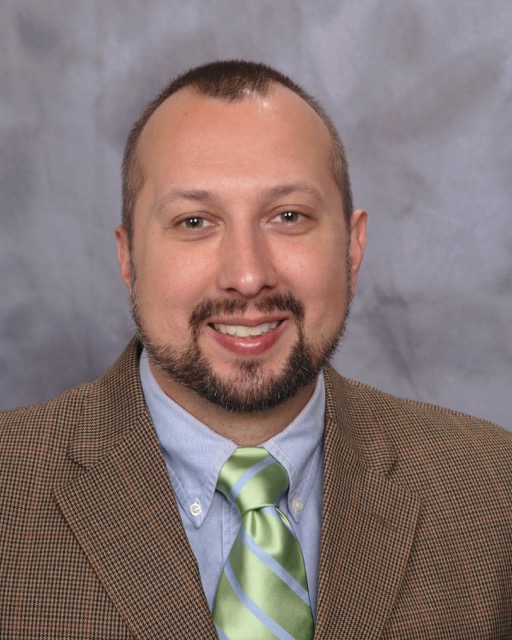 Chad R. Bhatti is a PhD Statistician with an interest in computational statistics and modeling. Bhatti has spent time in both academia and industry with over a decade of experience in each environment. He has been a research faculty at both Rice University and Tulane University, and a member of the MSDS faculty since the very first quarter of operation. His academic research experience was in financial econometrics, in particular the modeling of market microstructure tick or TAQ data. Over the last decade Bhatti has been working in industry developing proprietary data intelligence and predictive models for a variety of banking applications related to risk, underwriting, marketing, and operations.
Chad R. Bhatti is a PhD Statistician with an interest in computational statistics and modeling. Bhatti has spent time in both academia and industry with over a decade of experience in each environment. He has been a research faculty at both Rice University and Tulane University, and a member of the MSDS faculty since the very first quarter of operation. His academic research experience was in financial econometrics, in particular the modeling of market microstructure tick or TAQ data. Over the last decade Bhatti has been working in industry developing proprietary data intelligence and predictive models for a variety of banking applications related to risk, underwriting, marketing, and operations.
Contact Information
Current Research Interests
Computational Statistics, Generalized Linear Models, Consumer and Behavioral Modeling
Education
PhD in Statistics (Computational Statistics and Financial Econometrics), Rice University
MS in Applied Mathematics, University of Dayton
BSBA in Economics and Finance with a minor in Mathematics, Xavier University
Relevant Work
Principal Data Scientist, Citizens Bank (2016 – Present)
Northwestern University, Faculty in MS in Predictive Analytics Program, MS in Data Science Program (Sept 2011 – Present)
Principal Statistician, JPMorgan Chase (2008-2016)
Tulane University, Department of Mathematics
Rice University, Department of Statistics
Selected Publications and Products
[1] “The Birnbaum-Saunders Autoregressive Conditional Duration Model”, Chad R. Bhatti, Mathematics and Computers in Simulation Vol 80, Issue 10, March 2010 pp. 2062-2078.
[2] “On the Interday Homogeneity in the Intraday Rate of Trading”, Chad R. Bhatti, Mathematics and Computers in Simulation Vol 79, Issue 7, March 2009 pp. 2250-2257.
[3] “Intraday Trade and Quote Dynamics: A Cox Regression Analysis”, Chad R. Bhatti, Mathematics and Computers in Simulation Vol 79, Issue 7, March 2009 pp. 2240-2249.
[4] “Conditional Probability and HIV Testing: A Real World Example”, Chad R. Bhatti and Jennifer L. Wightman, The American Statistician Vol 62, No 3, August 2008 pp. 238-241.
Recent Courses
MSDS 410 Supervised Learning Methods
MSDS 454 Applied Probability and Simulation Modeling
MSDS 460 Decision Analytics
Teaching Approach and Philosophy
My teaching approach is traditional for the types of courses that I teach in the MSDS program – applied statistical modeling (including generalized linear models, statistical learning, and machine learning) with a strong statistical computing component (computing with data in a statistical computing language such as R). In these courses we take a standard three prong approach to integrating statistical concepts, statistical computing, and the modeling process. Models need to be relevant, correctly built, and implementable into production systems. How do we do that? That’s what we learn in the Analytics & Modeling Specialization.
How do we do that? – Let’s take a moment to break that down.
How do we learn concepts? - It’s hard to apply a concept correctly if we do not know what it is. Concepts are hard for beginning students to understand so I like to use video lectures to explain important concepts to students, just like I would in a brick-and-mortar classroom.
How are we applying these concepts? - Using a statistical computing language like R. Most of our students have a limited understanding of R so we develop our understanding of R through tutorial videos with sample code.
How do we learn how to build models? – By building models under supervision. My assignments are designed to constructively teach students to build models under my supervision. These are not mindless activities or busy work. You will engage in the modeling process inside my classroom under my supervision with the help from my teaching assistant. To be clear – what we are learning cannot be learned from a blog, MOOC, etc. You are learning how to build models from a professional modeler, not a code snippet here and a code snippet there. Code snippets are not modeling.
Over the history of the program I have developed a lot of modelers. I enjoy developing modelers. Typically I get the ‘greenhorn’ students in an introductory course where we focus on developing their modeling capabilities through the development of modeling fundamentals. Then, I continue to extend that development through the Analytics and Modeling specialization by having the students back in more advanced courses, and finally the capstone course. I like to have the students two to three times before they leave the program. It gives them a chance to develop, and me a chance to get to know them.
Daniel Baumgartner
 Dan Baumgartner is an independent management consultant with over 30 years of business process management and information technology work experience, primarily as a partner with management consulting firms. His career spans various leadership roles in management and information technology consulting services. He has proven expertise and extensive experience with improving business processes, developing IT strategies and plans, leading the implementation of IT solutions to address business issues, and selecting/implementing enterprise-wide software applications. In addition, Baumgartner has managed client business analysts, functional managers and software development resources to transform the business and implement the desired business solution.
Dan Baumgartner is an independent management consultant with over 30 years of business process management and information technology work experience, primarily as a partner with management consulting firms. His career spans various leadership roles in management and information technology consulting services. He has proven expertise and extensive experience with improving business processes, developing IT strategies and plans, leading the implementation of IT solutions to address business issues, and selecting/implementing enterprise-wide software applications. In addition, Baumgartner has managed client business analysts, functional managers and software development resources to transform the business and implement the desired business solution.
Contact Information
Education
Northwestern University
Kellogg School of Management Evanston, IL
Master of Management (Information Systems and Quantitative Methods)
Northwestern University
Robert R. McCormick School of Engineering Evanston, IL
Bachelor of Science (Computer Science)
(completed engineering degree requirements while enrolled in Kellogg School of Management )
Relevant Work
Baumgartner Associates LLC Naperville, IL
Management consulting firm providing IT strategy, business process management,
transformation management, and program management services.
Recent Courses
MSDS 475 Project Management
Moses Boudourides
 Moses Boudourides is in the Faculty of Northwestern University School of Professional Studies (SPS) Data Science Program and Affiliated Faculty at the Science of Networks in Communities (SONIC) at Northwestern University. In 2021-2, starting end of August 2021, he will be visiting Haverford College Department of Computer Science.
Moses Boudourides is in the Faculty of Northwestern University School of Professional Studies (SPS) Data Science Program and Affiliated Faculty at the Science of Networks in Communities (SONIC) at Northwestern University. In 2021-2, starting end of August 2021, he will be visiting Haverford College Department of Computer Science.
During 2019-20, he was Visiting Professor at the New York University Abu Dhabi (NYUAD). In 2017, he retired from the University of Patras in Greece as professor of Computational and Applied Mathematics at the Department of Mathematics.
His undergraduate studies (Engineering Diploma) were on Chemical Engineering at the National Technical University of Athens and his graduate studies (PhD) on Mechanics at the Johns Hopkins University.
In 2019, he was awarded a Robert K. Merton Visiting Research Fellowship from the Institute for Analytical Sociology (IAS) at Linköping University in Sweden.
Contact Information
Current Research Interests
Dynamical systems, social network analysis, social media data analysis, digital humanities, and computational social science
Education
>Ph.D., Johns Hopkins University, Department of Mechanics. Dissertation title: "Stability of Rimming Flows.”
Diploma, National Technical University of Athens, School of Chemical Engineering
Relevant Work
Northwestern University
2018–:
Adjunct Instructor for the Master of Science in Data Science Program
2018–:
Affiliated faculty at the Science of Networks in Communities (SONIC)
New York University Abu Dhabi (NYUAD)
2019–2020:
Visiting Professor, NYUAD Science Division, Program of Mathematics
University of Patras
1998–2017:
Professor, Department of Mathematics
Democritus University of Thrace at Xanthi
1982–1998:
Associate Professor, Department of Electrical & Computer Engineering
Visiting Positions
1990–91:
Visiting Professor, Department of Mathematics, University of California at Irvine
1981–82:
Post-Doctoral Fellow, Laboratory of Numerical Analysis, University Paris VI (Pierre et Marie Curie), France
1980–81:
Post-Doctoral Fellow, Department of Mathematics, University of Florence, Italy
Selected Publications and Products
Hasheminezhad, R., Boudourides, M., & Brandes, U. (2020). Scale-free networks need not be fragile.
Submitted to ASONAM 2020 on Apr 20, 2020
https://github.com/mboudour/var/blob/master/HasheminezhadBoudourides%26Brandes_Scale-FreeNetworksNeedNotBeFragile.pdf
Tsakonas, G., Lenis, S., & Boudourides, M. (2020). How open is “open”? A bibliometric study on the literature of Open Science and Open Access. Invited to be published as a feature paper in Publications.
https://github.com/mboudour/var/blob/master/TsakonasLenis%26Boudourides_HowOpenIs%22Open%22%3F_ABibliometricStudyOnTheliteratureOfOpenScience%26OpenAccess.pdf
Balaska, V., Bampis, L., Boudourides, M., & Gasteratos, A. (2020). Unsupervised Semantic Clustering and Localization for Mobile Robotics Tasks.
Robotics and Autonomous Systems, 131, September 2020, 103567.
https://doi.org/10.1016/j.robot.2020.103567
Siapera, E., Boudourides, M.A., Lenis, S., & Suiter, J. (2018). Refugees and Networked Publics: Affect and Capture. Social Media + Society , 4 (1): 1–21, https://doi.org/10.1177/2056305118764437.
Papachristopoulos, L., Tsakonas, G., Boudourides, M., Sfakakis, M., Kleidis, N., Papatheodorou, C., &
Lenis, S. (2017). Discovering the Structure and Impact of the Digital Library Evaluation Domain.
International Journal of Digital Libraries, https://doi.org/10.1007/s00799-017-0222-x
Boudourides, M.A., & Lenis, S.T. (2016). Dominating sets and ego-centered decompositions in social networks. The European Physical Journal Special Topics 225:6, 1293-1310 https://doi.org/10.1140/epjst%2Fe2016-02673-0
Andretta, M, Botetzagias, I, Boudourides, M.A., Kioufegi, O., & Yang. M. (2009). Novel Characteristics of the GJMs: A (latent) network approach. In Donatella della Porta (ed.), Another Europe: Conceptions and Practices of Democracy in the European Social Forums (pp. 149–72). London: Routledge.
Boudourides, M.A. (2009). On Minimal Relations. Nessie 2 (Vespusia, Juillet 2009).
Boudourides, M.A. (2009). The Relational Ontology of Social Network Theories. Nessie 1 (FireWorks, Juin 2009).
Boudourides, M.A., & Botetzagias, I. (2007). Networks of protest in Greece 2002-3. In Derrick Purdue (ed.), Civil Societies and Social Movements: Potentials and Problems (pp. 109–23). London: Routledge.
Boudourides, M.A., Kioufenzi, O., & Leandros, N. (2006). Political campaigning in new media: The Greek national elections of March 2004. In N. Leandros (ed.), The Impact of Internet on the Mass Media in Europe (pp. 167–79). Suffolk, UK: Abramis, Arima Publishing.
Recognition
Robert K. Merton Visiting Research Fellowship from the Institute for Analytical Sociology (IAS) at Linköping University in Sweden.
Recent Courses
MSDS 400 Math for Data Scientists
MSDS 430 Python for Data Science
MSDS 452 Web and Network Data Science
Candice Bradley
 Candice Bradley is a quantitative social scientist with over two decades experience teaching statistics and research methods at the graduate level. Trained at UC Irvine’s interdisciplinary Social Relations program, Bradley followed her doctoral studies with a Fulbright Fellowship to Africa, engaging in fieldwork documenting the start of Kenya’s fertility decline. As a quantitative anthropologist, a rather rare specialization in a discipline not known for number crunching, Bradley has published research using multivariate analyses in such areas as demography, academic advancement of women, cross-cultural methodology, deep ecology, and time allocation. Bradley earned her PhD and masters from UC Irvine in social sciences.
Candice Bradley is a quantitative social scientist with over two decades experience teaching statistics and research methods at the graduate level. Trained at UC Irvine’s interdisciplinary Social Relations program, Bradley followed her doctoral studies with a Fulbright Fellowship to Africa, engaging in fieldwork documenting the start of Kenya’s fertility decline. As a quantitative anthropologist, a rather rare specialization in a discipline not known for number crunching, Bradley has published research using multivariate analyses in such areas as demography, academic advancement of women, cross-cultural methodology, deep ecology, and time allocation. Bradley earned her PhD and masters from UC Irvine in social sciences.
Contact Information
Recent Courses
MSDS 402 Introduction to Data Science
MSDS 455 Data Visualization
MSDS 485 Data Governance, Ethics, and Law
Dr. Anil D. Chaturvedi
 Anil Chaturvedi has over 35 years of professional experience at companies such as AT&T Bell Labs, Kraft Foods, Capital One, and Accenture. He has provided consulting services to Bank of America, Fannie Mae, Johnson & Johnson, and Procter & Gamble. His general research interests include enhancing business value using data science. He has patented and published advanced algorithms for predictive modeling, market segmentation, new product development, product positioning, customer loyalty, consumer promotion mix optimization, and brand strategy. He earned his PhD from Rutgers University and an MBA from IIM Ahmedabad, India.
Anil Chaturvedi has over 35 years of professional experience at companies such as AT&T Bell Labs, Kraft Foods, Capital One, and Accenture. He has provided consulting services to Bank of America, Fannie Mae, Johnson & Johnson, and Procter & Gamble. His general research interests include enhancing business value using data science. He has patented and published advanced algorithms for predictive modeling, market segmentation, new product development, product positioning, customer loyalty, consumer promotion mix optimization, and brand strategy. He earned his PhD from Rutgers University and an MBA from IIM Ahmedabad, India.
Contact Information
Education
Ph.D in Management from School of Business, Rutgers University
MBA from the IIM Ahmeadabad, India.
Relevant Work
President – Suman Inc.
Consultant at Newbold Advisors
Senior Consultant at Accenture
Director at Capital One
Category Analytics Manager at Kraft Foods
Member of Technical Staff at AT&T Bell Labs
Selected Publications and Products
Chaturvedi, A. D. and Carroll, J. D. (2006). CLUSCALE (“CLUstering and Multidimensional SCAL[E]ing”). A Three-Way Hybrid Model Incorporating Overlapping Clustering and Multidimensional Scaling Structure. Journal of Classification, 23, 2, 269-300.
Carroll, J. D., Arabie, P. A., Chaturvedi, A. D., and Hubert, L. A. (2004). Multidimensional Scaling and Clustering in Marketing: Paul Green’s Role,” in Market Research and Modeling: Progress and Prospects: A Tribute to Paul Green, Eds., Yoram Wind and Paul Green, Kluwer Academic Publishers: Netherlands, 71-102.
Chaturvedi, A. D., Green, P. E., and Carroll, J. D. (2001). K-Modes Clustering. Journal of Classification, 18, 35-56.
Chaturvedi, A.D, and Carroll, J. D. (1998). A Perceptual Mapping Procedure for Analysis of Proximity Data to Determine Common and Unique Product-Market Structures. European Journal of Operational Research, 111, 268–284.
Carroll, J. D., and Chaturvedi, A. (1998). K-Midranges Clustering. In A. Rizzi, M. Vichi & H. H. Bock (Eds.), Advances in Data Science and Classification (pp. 3–14). Berlin: Springer.
Chaturvedi, A.D, and Carroll, J. D. (1997). An L1-Norm Procedure for Fitting Overlapping Clustering Models to Proximity Data. In Y. Dodge (Ed.), L1-Statistical procedures and related topics (31, 443-456). Hayward, CA: IMS [Institute of Mathematical Statistics] Lecture Notes - Monograph Series [LNM].
Chaturvedi, A.D, Carroll, J. D., Green, P. E., and Rotondo, J. A. (1997). A Feature-Based Approach to Market Segmentation via Overlapping K-Centroids Clustering. Journal of Marketing Research, XXXIV, 370–377.
Chaturvedi, A. D., and Green, P. (1995). Software Review: SPSS for Windows CHAID 6.0, Chicago: SPSS, Inc., 1992. Journal of Marketing Research, Volume 32, pages 245-254.
Carroll, J. D., and Chaturvedi, A. (1995). A General Approach to Clustering and Multidimensional Scaling of Two-way, Three-way, or Higher-Way Data. In R. D. Luce, M. D'Zmura, D. D. Hoffman, G. Iverson & A. K. Romney (Eds.), Geometric Representations of Perceptual Phenomena (pp. 295–318). Mahwah, NJ: Erlbaum.
Chaturvedi, A.D, and Carroll, J. D. (1994). An Alternating Combinatorial Optimization Approach to Fitting the INDCLUS and Generalized INDCLUS Models. Journal of Classification, 11, 155-170.
De Soete, G., Carroll, J. D., and Chaturvedi, A. (1993). A Modified CANDECOMP Method for Fitting the Extended INDSCAL Model. Journal of Classification, 10, 75–92.
Carroll, J. D., and Green, P. E., with contributions from Chaturvedi, A.D. (1997). Mathematical Tools for Applied Multivariate Analysis, Academic Press: San Diego. (ISBN 0121609553 and 0121609545)
Recognition
Recent Courses
MSDS 411-DL : Unsupervised Learning Methods
MSDS 422-DL : Practical Machine Learning
MSDS 450-DL : Marketing Analytics
Kimberly Chulis
 Kimberly Chulis has over 25 years of professional advanced analytics experience and has demonstrated analytic expertise on projects at numerous companies and industries, including WellPoint, HCSC, UHG, Microsoft, IBM, Dell, Accenture, Ogilvy, Sprint/Nextel, Commonwealth Edison, TXU, Eloyalty, Allstate, Cendant, CapGemini and others across a multitude of industries. Her current focus is on applications of data science to measure customer brand loyalty across social and digital channels. Other research revolves around social media as a platform to drive positive public health, disease-related community support, early detection and intervention for healthcare outcomes. Chulis holds a PhD from Purdue University's Health and Human Sciences Consumer Behavior program, and a masters degree in economics with a focus on health economics and econometrics from UIC. She is in her 7th year as faculty in the MS Data Science program at Northwestern University, and served as Director, Business Analytics Certificate Program at University of Chicago Graham School. Chulis co-founded the company in 2001 and is CEO of Core Analytics® and the BrandMeter* Architect.
Kimberly Chulis has over 25 years of professional advanced analytics experience and has demonstrated analytic expertise on projects at numerous companies and industries, including WellPoint, HCSC, UHG, Microsoft, IBM, Dell, Accenture, Ogilvy, Sprint/Nextel, Commonwealth Edison, TXU, Eloyalty, Allstate, Cendant, CapGemini and others across a multitude of industries. Her current focus is on applications of data science to measure customer brand loyalty across social and digital channels. Other research revolves around social media as a platform to drive positive public health, disease-related community support, early detection and intervention for healthcare outcomes. Chulis holds a PhD from Purdue University's Health and Human Sciences Consumer Behavior program, and a masters degree in economics with a focus on health economics and econometrics from UIC. She is in her 7th year as faculty in the MS Data Science program at Northwestern University, and served as Director, Business Analytics Certificate Program at University of Chicago Graham School. Chulis co-founded the company in 2001 and is CEO of Core Analytics® and the BrandMeter* Architect.
Contact Information
Current Research Interests
Marketing analytics, cloud architecture, brand loyalty, NLP, healthcare analytics, data governance and ethics, social media analytics, digital transformation strategy, ecommerce
Education
PhD, Consumer Behavior from Purdue University, West Lafayette, Indiana
MA, Economics from UIC, Chicago, Illinois
Relevant Work
CEO and co-founder, Core Analytics®, LLC 2003-Current
MSDS faculty and course designer, Northwestern University 2014-Current
VP, Data Science, Horizon Media (Night Market) 2020
Head of Data Science Lab, Cap Gemini 2018-2019
Director, Business Analytics Certificate University of Chicago - Graham School, 2017
Global Black Belt, Advanced Analytics, Microsoft 2016-2017
Technical Sales Engineer, Data Science, Dell 2015
Market Manager Cloud Analytics, Enterprise Architect, IBM 2012-2014
Database Marketing Analytics Manager, Wellpoint/Anthem 2010-2011
Selected Publications and Products
"Data Mining Twitter for Cancer, Diabetes and Asthma Insights” 2016
BrandMeter®
Recent Courses
MSDS 403 Data Science in Practice
MSDS 480 Business Leadership and Communications
MSDS 485 Data Governance, Ethics, and Law
Kathryn A. Daugherty
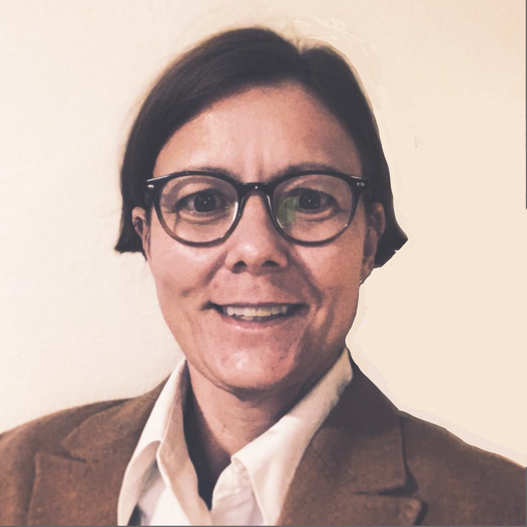 Kathryn Daugherty is an analytics professional with more than a decade of experience leveraging data to improve business performance. She currently manages a data and analytics team at AdventHealth Information Technology. Previously, Daugherty provided pricing guidance for restaurants and retailers. She began her career in finance, supporting banking, defense and lodging industries. She received her MS in predictive analytics from Northwestern University, her MBA with specializations in finance and management from Rollins College and a BA in economics from the University of Colorado at Boulder. Daugherty is certified in project management (PMP), lean, six sigma, AWS and restaurant revenue management.
Kathryn Daugherty is an analytics professional with more than a decade of experience leveraging data to improve business performance. She currently manages a data and analytics team at AdventHealth Information Technology. Previously, Daugherty provided pricing guidance for restaurants and retailers. She began her career in finance, supporting banking, defense and lodging industries. She received her MS in predictive analytics from Northwestern University, her MBA with specializations in finance and management from Rollins College and a BA in economics from the University of Colorado at Boulder. Daugherty is certified in project management (PMP), lean, six sigma, AWS and restaurant revenue management.
Contact Information
Current Research Interests
Data visualization, Pricing, Revenue management, Project management
Education
MS, Predictive Analytics, Northwestern University
MBA, Rollins College
BA, Economics, University of Colorado at Boulder
Project Management Professional (PMP)
Lean Six Sigma Green Belt from Lockheed Martin
Restaurant Revenue Management from eCornell
Relevent Work
Senior Pricing Product Manager at Chewy, Inc.
Manager, Revenue Management and Data Science at Universal Parks & Resorts
Senior Pricing & Revenue Management Analyst at Disney Parks, Experiences & Products
Financial Analyst at Lockheed Martin Inc.
Senior Banker at US Bank
Recent Courses
MSDS 455 Data Visualization
MSDS 474 Accounting and Finance for Technology Managers
MSDS 476 Business Process Analytics
Teaching Approach and Philosophy
Hello. My name is Kathryn Daugherty. I’ve been teaching in the MSDS program since twenty seventeen and primarily teach Data Visualization and Accounting and Finance for Analytics Managers. I’m also a graduate of this program, so I’m familiar with many of the courses and have experienced balancing professional work with course work. Thus, I feel I’ve been in your shoes, so-to-speak.
My professional experience started off in banking, transitioned to finance, and now I focus on analytics specific to pricing and revenue management. I stay up-to-date by following online sources and sites, while also reading any books about data visualization or pricing that I can find. I also learn from colleagues and my students.
My teaching methods include discussions, presentations, individual assignments and group projects. Assigned reading and presentations cover foundational lessons that are supplemented with discussions. I host optional, and recorded, sync sessions throughout the term to highlight key themes and, based on my experience, I also cover areas that are sometimes more challenging. I’m available for any questions or consultations, as is my Teaching Assistant, and am also open to career development conversations as well. I like it infuse related current topics into the courses where appropriate, typically in the form of announcements.
In Accounting and Finance, foundational terms and statements are covered and then students build out a business case for an analytics start-up of their design. There is no coding in this data science course; we instead focus on spreadsheets and presentations to communicate financial results. As this course combines financial accounting, managerial accounting and also finance, three classes often required in an MBA program, there are three texts to cover the essential components of each.
In Data Visualization, principles of visualization best practices, which are tool agnostic, are the primary focus. Those practices are then employed to create several visualizations, including the creation of a visualization-driven narrative called ‘The Show.’ Python and/or R are utilized and we make Tableau available as well. This is a very interactive course, but also requires a fair amount of reading – especially the primary textbook.
I enjoy teaching as I like sharing my experiences with others while also learning from my students. I get excited about these topics and like to share what I’ve learned. What inspires me most is seeing work throughout the term assembled into final projects that demonstrate a quarter’s worth of learning. It’s amazing to see how much can be covered in ten weeks.
John Derwent
 John Derwent is an experienced learning professional with an analytical bent and is currently a program advisor for the Data Science and Visualization Bootcamp program and adjunct faculty with the Masters of Science in Data Science program at Northwestern University. After completing his graduate work, he moved into the world of corporate education and development practicing in the software and technology industries before moving on to a position with a management consulting firm. Most recently, he co-leads the learning group for a consulting and product development team focused on Artificial Intelligence and Data Science applications to the business world. His main professional goal is to help people understand how mathematics can improve businesses and the world. He earned his PhD at Northwestern University in Applied Mathematics.
John Derwent is an experienced learning professional with an analytical bent and is currently a program advisor for the Data Science and Visualization Bootcamp program and adjunct faculty with the Masters of Science in Data Science program at Northwestern University. After completing his graduate work, he moved into the world of corporate education and development practicing in the software and technology industries before moving on to a position with a management consulting firm. Most recently, he co-leads the learning group for a consulting and product development team focused on Artificial Intelligence and Data Science applications to the business world. His main professional goal is to help people understand how mathematics can improve businesses and the world. He earned his PhD at Northwestern University in Applied Mathematics.
Contact Information
Education
PhD Applied Mathematics, Northwestern University, 2000
MS Applied Mathematics, Northwestern University, 1995
Relevant Work
Technical Training Manager, BCG GAMMA 2018-Present
Analytics Content Manager, Boston Consulting Group 2014 – 2018
Program Advisor and Adjunct Faculty, Certificate in Business Analytics, Northwestern University, 2013 – 2019
Worldwide Education Transformation Leader, Business Analytics, IBM 2009-2013
Recent Courses
MSDS 402 Introduction to Data Science
MSDS 403 Data Science in Practice
Teaching Approach and Philosophy
Hello, my name is John Derwent and I have been a part of the MS in data science program since 2015.
My course offerings are generally bookends for the program:
- Introductions to the way that data science can be used to improve organizations, be they businesses, not for profits, public sector, NGO or otherwise
- And a capstone focused on analytics leadership expressed through the implementation of data science solutions within the context of a business merger case study.
My academic background is in theoretical and applied mathematics. Combined with a drive to help others be better, this has taken me through a series of learning and training roles in the tech, software, and consulting industries. My latest role is building learning solutions for a group dedicated to creating AI and data science solutions to business problems.
Our program is driven by numbers and technology, but I believe that is only a part of what is needed to make data science a successful shaper of the world. Inherent in building solutions is an understanding of the mission, business, organization, and people involved. The classes that I lead are somewhat outliers in the program in that they focus on that understanding and how data science can be applied in those contexts rather than only the numbers, methods, and technology of data science. This, too, inspires my teaching philosophy: let’s build understanding together.
In class, I present myself more as guide, mentor, and discussion partner pushing my students to gain their own understanding, not as a lecturer imparting knowledge and wisdom. For me asking questions and having to clearly explain answers are the best way to learn. This means that you will find me asking those questions, poking your answers, and pushing you to explain more clearly and concisely. We don’t spend time looking for too many exact answers in my classes. Instead, together we build structures and practices to gain insights and understanding that can be applied to a multitude of contexts.
Sharon Dill
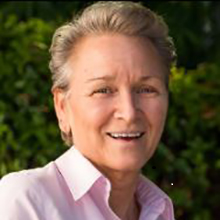 Sharon Dill has been teaching at Northwestern University in the data science program since 2018. She is a graduate of the program where she received her M.S. in June 2017. She worked her entire career in Information Technology where she started off as a programmer and then worked her way up the ladder to Chief Information Officer and then Chief Data Officer. Dill brings her experience in the business world to the classroom where she is able to help students connect what they are learning to their current workplace and to their future careers in data science.
Sharon Dill has been teaching at Northwestern University in the data science program since 2018. She is a graduate of the program where she received her M.S. in June 2017. She worked her entire career in Information Technology where she started off as a programmer and then worked her way up the ladder to Chief Information Officer and then Chief Data Officer. Dill brings her experience in the business world to the classroom where she is able to help students connect what they are learning to their current workplace and to their future careers in data science.
Contact Information
Current Research Interests
Graph Databases, Data Privacy, Data Ethics, Enterprise Information Systems
Education
Doctorate in Computer Science, Colorado Technical University
Emphasis in Enterprise Information Systems
MS in Data Science, Northwestern University
MBA, University of Phoenix
Relevant Work
Northwestern University, Evanston, Illinois (August 2018 – Present)
School of Professional Studies
Adjunct Professor
Data Science Program
Professional Association of Diving Instructors (November 1988 – June 2017)
Chief Data Officer (2015 – 2017)
Chief Information Officer (2000 – 2015)
Director, Information Technology (1994-2000)
Senior Programmer/Analyst (1988 – 1994)
Munson Wholesale Sporting Goods (July 1984 – November 1988)
Programmer
Recent Courses
MSDS 420 Database Systems and Data Preparation
MSDS 430 Python for Data Science
Carrie Dugan
 Carrie Dugan is the Course Lead for MSDS 400 for Northwestern University. She has been teaching and developing courses for the program since the fall of 2014. Dugan began her career as an actuary then switched to teaching in higher education in 2000 and has been teaching solely online since 2008. She has taught a wide variety of undergraduate and graduate-level courses at various universities including MSDS 400, MSDS 430, and MSDS 460 at Northwestern and she has also developed several courses for online delivery including MSDS 400 and MSDS 430. Dugan is most interested in the uses and relevance of mathematics and programming in data science and current trends in the industry.
Carrie Dugan is the Course Lead for MSDS 400 for Northwestern University. She has been teaching and developing courses for the program since the fall of 2014. Dugan began her career as an actuary then switched to teaching in higher education in 2000 and has been teaching solely online since 2008. She has taught a wide variety of undergraduate and graduate-level courses at various universities including MSDS 400, MSDS 430, and MSDS 460 at Northwestern and she has also developed several courses for online delivery including MSDS 400 and MSDS 430. Dugan is most interested in the uses and relevance of mathematics and programming in data science and current trends in the industry.
Contact Information
Education
PhD in Pure Mathematics, Kent State University
BS in Mathematics, Marshall University
Relevant Work
Northwestern University School of Professional Studies (2014 – Present), Course Lead for MSDS 400
Coopersmith (2019) Contract Employee for Course Development
Ashland University (2016 – 2020) Contract Employee for Course Development
Southern New Hampshire University (2012 – 2016) Mathematics Adjunct
University of Northwest Ohio (2012 – 2016) Mathematics Adjunct
American Public University System (2010 – 2015) Mathematic Adjunct
Recent Courses
MSDS 400 Math for Data Scientists
MSDS 430 Python for Data Science
Philip M. Goldfeder
 Phil Goldfeder has been involved with MSDS/MSPA since its inception. He has created, edited and taught multiple courses, and taken on several roles within the program. His prior work was as a management consultant with Booz & Company (formerly Booz·Allen and Hamilton, Inc), specializing in mergers and acquisitions, followed by over two decades in both classroom and online education. He has been published in Journal of Phys. Chemistry B, Mathematical Problems in Engineering, Journal of Engineering Mathematics, and Graziadio Business Review, as well as several chapters in the Macmillan Science Library. Goldfeder has taught many subjects and disciplines to all types of learners, ranging from grade school through the doctoral level, in both traditional and online settings, and is an internationally recognized expert in online education. He is a faculty advisor to the Student Leadership Council and sits on the editorial board of Data Science Quarterly. He lives in the Chicagoland area with his wife and sons.
Phil Goldfeder has been involved with MSDS/MSPA since its inception. He has created, edited and taught multiple courses, and taken on several roles within the program. His prior work was as a management consultant with Booz & Company (formerly Booz·Allen and Hamilton, Inc), specializing in mergers and acquisitions, followed by over two decades in both classroom and online education. He has been published in Journal of Phys. Chemistry B, Mathematical Problems in Engineering, Journal of Engineering Mathematics, and Graziadio Business Review, as well as several chapters in the Macmillan Science Library. Goldfeder has taught many subjects and disciplines to all types of learners, ranging from grade school through the doctoral level, in both traditional and online settings, and is an internationally recognized expert in online education. He is a faculty advisor to the Student Leadership Council and sits on the editorial board of Data Science Quarterly. He lives in the Chicagoland area with his wife and sons.
Contact Information
Current Research Interests
Ethics in data science, investment strategies, sports and gambling analytics
Education
PhD in Applied Mathematics, Northwestern University
MS in Applied Mathematics, Northwestern University
BA in Physics and Philosophy, Lafayette College
Relevant Work
Northwestern University, Evanston, Illinois (June 2011–Present) School of Professional Studies, Assistant Professor of Instruction, Data Science Program
University of Liverpool, Liverpool, England (2002-2010), Teacher of the University
Columbia College, Chicago, Illinois (July 2000-June 2002), Assistant Professor, Department of Science and Mathematics
Booz Allen & Hamilton, Inc. Chicago, Illinois (October 1998 – March 2000)
Senior Consultant, Operations Management Group
Selected Publications and Products
A. DiLellio and P. M. Goldfeder, “Is There a Free Lunch in Commission Free ETFs?”, Graziadio Business Review 19, No. 2, 2016.
Goldfeder, Philip M. “Math of the Internet.“ Mathematics (Macmillan Science Library). Ed. Barry Mas, Jr. New York: Macmillan, 2002.
Goldfeder, Philip M.; Lynch, Rose Kathleen, “Accuracy and Data Collection,“ Mathematics (Macmillan Science Library). Ed. Barry Mas, Jr. New York: Macmillan, 2002.
Goldfeder, P.M.; Volpert, V.A. "A Model of Frontal Polymerization Using Complex Initiation." Mathematical Problems in Engineering 5, 139-160 (1999).
Goldfeder, P.M.; Volpert, V.A.; Ilyashensko, V.M.; Pojman, J.A.; Solovyov, S.E. "Mathematical Modeling of Free-Radical Polymerization Fronts," Journal of Phys. Chemistry B 101, 3474-3482 (1997).Recent Courses
MSDS 400 Math for Data Scientists
MSDS 485 Data Governance, Ethics, and Law
Ali Gowani

Ali Gowani is an innovator with interests in machine learning, particularly Recommender Systems, privacy-preserving systems, and cross-functional collaboration. At Meta, he led cutting-edge initiatives in Ads Consent Systems and Signal Growth, prioritizing sustainable solutions and impactful model consolidation to enhance ads personalization and revenue growth. His commitment to advancing privacy in ML applications is evident in the deployment of anonymized aggregated learning systems and has received a patent on using AI for Next Best Action. With a strong foundation in data science in previous leadership roles at Amazon Robotics, Microsoft and Toyota, Gowani's focus spans improving operational efficiency, driving strategic innovation, and delivering scalable solutions.
Contact Information
Research Interests
ML Applications
Recommender Systems
Privacy-preserving Systems
Education
MS, Data Science, Northwestern University
BBA, Management Information Systems, Southern Methodist University
BS, Economics with Financial Applications, Southern Methodist University
Relevant Work
Amazon Robotics: led efforts on next-gen autonomous robotic solution to automate outbound dock.
Meta: led team in the Ranking AI, Monetization organization to improve multiple Signal Growth models.
Selected Publications and Products
Patent [ 11,978,003 ]: Use Multiple Artificial Intelligence (AI) Engines To Determine A Next Best Action For Professional Development Of Employees
Reviewer (Book): Ace the Data Science Interview
Recent Courses
MSDS 476 Business Process Analytics
MSDS 490 Recommender Systems
MSDS 420 Database Systems and Data Preparation
Bala Kamallakharan

Bala Kamallakharan is the Founder of Startup Iceland, a grassroots initiative to build a sustainable startup ecosystem in Iceland. Bala is also Co-Founder of Dattaca Labs and Iceland Venture Studio. Bala has served as Executive Board Member in Guide to Iceland and TravelShift. Bala has invested, mentored and was the Chairman of the Board at CLARA (Resonata), the Icelandic Community Analytics company which was acquired by Jive Software in 2013. CLARA was the first Icelandic company to be acquired into Silicon Valley. Bala has done various early stage investments like Buuteeq (acquired by Priceline.com NASDAQ:PCLN), GreenQloud (acquired by NetApp NASDAQ:NTAP). Bala has been teaching Entrepreneurship and how to start a startup class in Reykjavik University since 2015.
Contact Information
Current Research Interests
Entrepreneurship, Startups, Personal Data and Security, Behavioural Economics, AI & ML
Education Background
MS – Economics and International Trade – Louisiana State University
MS – Information Systems and Decisions Science – Louisiana State University
MMS – Birla Institute of Technology and Science
Relevant Work Experience
Iceland Venture Studio, Founder and Managing Director, Jan 2019 – Present
Reykjavik University, Course Instructor, Aug 2015 - Present
Startup Iceland, Founder, Jan 2012 - Present
Glitnir Bank, Executive Director and Chief Representative in India, Feb 2006 – Oct 2008
Capgemini, Manager, June 1999 – Jan 2006
Louisiana State University, Graduate Research and Teaching Assistant, Aug 1996 – June 1999
Selected Publications & Products
A Smartphone Application for Personalized Approach to Diabetic Eye Disease, Journal of Eye Study and Treatment · Apr 1, 2019
Startup Communities, Wiley Global Finance · Oct 1, 2012
Can Power Law help us avoid the high impact tail events? Rannsóknir Í Félagsvísindum X - University of Iceland Yearly Publication of Scholarly work October 2009
Alexander Kline
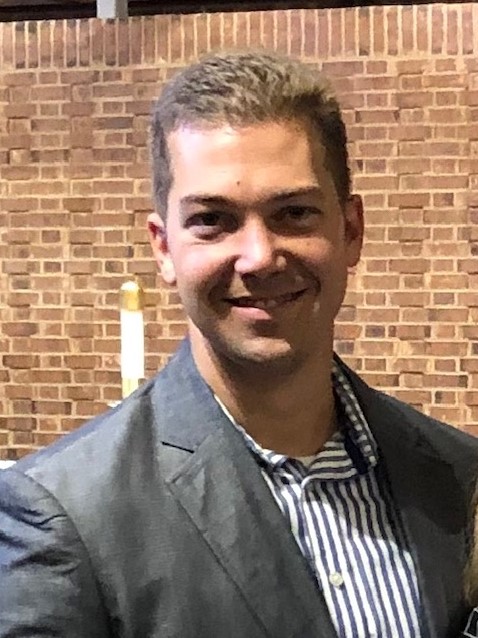 Alexander Kline is a leader capable of thriving in stressful environments with experience in Operations Research as well as combat operations in the US Army. He has led analytical efforts supporting finance, manpower, national defense, military operations, and resource allocation. His expertise lies in the design, implementation, and analysis of algorithms to solve complex problems. Kline has given lectures on Missile Defense research, heuristic and metaheuristic algorithms, multivariate analysis, and queueing theory. He has published articles in peer-reviewed journals and in conference proceedings, and has several additional articles in some phase of the publication process. Kline believes in focused perseverance and he is committed to excellence in all that he does.
Alexander Kline is a leader capable of thriving in stressful environments with experience in Operations Research as well as combat operations in the US Army. He has led analytical efforts supporting finance, manpower, national defense, military operations, and resource allocation. His expertise lies in the design, implementation, and analysis of algorithms to solve complex problems. Kline has given lectures on Missile Defense research, heuristic and metaheuristic algorithms, multivariate analysis, and queueing theory. He has published articles in peer-reviewed journals and in conference proceedings, and has several additional articles in some phase of the publication process. Kline believes in focused perseverance and he is committed to excellence in all that he does.
Contact Information
Education Background
PhD in Operations Research from Air Force Institute of Technology
MS in Operations Research from Air Force Institute of Technology
MS in Engineering Management from University of Missouri, Science and Technology
BS in Physics from the United States Military Academy (West Point)
Relevant Work Experience
Northwestern University, Evanston, Illinois (June 2021–Present) School of Professional Studies, Adjunct Professor, Data Science Program
US Army (May 2008–Present)
- Joint Artificial Intelligence Center (August 2021 – Present) AI Engineer and Data Scientist
- Headquarters, Department of the Army (December 2019 – August 2021) Budget/Program Analyst
Selected Publication and Products
Kline, Alexander, Darryl Ahner, and Raymond Hill, 2019. “The Weapon-Target Assignment Problem,” in Computers & Operations Research, 105, 226-236
Kline, Alexander, Darryl Ahner, and Brian Lunday, 2019. “Real-Time Heuristic Algorithms for the Static Weapon Target Assignment Problem,” in Journal of Heuristics, 25 (3), 377-397
Kline, Alexander, Darryl Ahner, and Brian Lunday, 2020. “A Heuristic and Metaheuristic Approach to the Static Weapon Target Assignment Problem,” in Journal of Global Optimization, 1-22
Caballero, William, Alexander Kline, and Brian Lunday, 2018. “Challenges and Solutions with Exponentiation Constraints using Decision Variables via the BARON Commercial Solver,” in 2018 IISE Annual Conference Proceedings, 1331-1336
Kline, Alexander, William Caballero, and Darryl Ahner, 2018. “False Optimality of Integer Programs with Exponential Decision Variables,” in 2018 IISE Annual Conference Proceedings, 1873-1877
Kline, Alexander and Darryl Ahner, 2018. “Estimating Parameters of Partially Observable Queues,” in 2018 IISE Annual Conference Proceedings
Recent Courses
MSDS 400 Math for Data Scientists
MSDS 460 Decision Analytics
Alianna Maren
 Alianna J. Maren is a researcher and thought-leader in predictive analytics, with four patents, ranging from predictive analytics to knowledge discovery to sensor fusion (the latter was named as Patent of the Week by the New York Times shortly after it was awarded). Her expertise ranges from statistical thermodynamics to model patterns and rapidly-changing systems to text analytics in knowledge discovery to neural networks. As cofounder and chief scientist with EagleForce Associates (later Viziant Corporation), she was key in supporting DIA's panels on knowledge discovery and predictive analytics. Her innovative work at Viziant led to three of her four patent awards and two rounds of investment funding. As senior scientist with Accurate Automation Corporation, Maren's innovations in neural networks, sensor fusion, and system identification were the basis for receiving over $3.4M in federally-funded SBIR and STTR contracts. She introduced and taught the first course in Knowledge Discovery at Georgetown University, and also Cloud Computing at both George Mason and Marymount Universities Her first book, the “Handbook of Neural Computing Applications” (Academic, 1990), became a landmark in the emerging neural network arena. Maren holds a Ph.D. in physical chemistry from Arizona State University and a bachelor's degree in mathematics from the University of North Dakota.
Alianna J. Maren is a researcher and thought-leader in predictive analytics, with four patents, ranging from predictive analytics to knowledge discovery to sensor fusion (the latter was named as Patent of the Week by the New York Times shortly after it was awarded). Her expertise ranges from statistical thermodynamics to model patterns and rapidly-changing systems to text analytics in knowledge discovery to neural networks. As cofounder and chief scientist with EagleForce Associates (later Viziant Corporation), she was key in supporting DIA's panels on knowledge discovery and predictive analytics. Her innovative work at Viziant led to three of her four patent awards and two rounds of investment funding. As senior scientist with Accurate Automation Corporation, Maren's innovations in neural networks, sensor fusion, and system identification were the basis for receiving over $3.4M in federally-funded SBIR and STTR contracts. She introduced and taught the first course in Knowledge Discovery at Georgetown University, and also Cloud Computing at both George Mason and Marymount Universities Her first book, the “Handbook of Neural Computing Applications” (Academic, 1990), became a landmark in the emerging neural network arena. Maren holds a Ph.D. in physical chemistry from Arizona State University and a bachelor's degree in mathematics from the University of North Dakota.
Contact Information
Recent Courses
MSDS 453 Natural Language Processing
MSDS 458 Artificial Intelligence and Deep Learning
MSDS 498 Capstone Project
William T. Mickelson
 William T. (Bill) Mickelson is an applied social science statistician and statistical consultant with over 35 years of experience in both academia and industry. Mickelson has taught across the spectrum of research and statistical topics, including courses in mathematical and stochastic modeling, general linear statistical models, response surface methods, multivariate statistical methods, and linear and non-linear optimization. He is deeply involved with statistics education and the promoting of statistical reasoning, thinking, and literacy. He has also maintained a statistical consulting practice with clients primarily in Health Care, state and local government, health and fitness, transportation, insurance, banking and finance, and Higher Education.
William T. (Bill) Mickelson is an applied social science statistician and statistical consultant with over 35 years of experience in both academia and industry. Mickelson has taught across the spectrum of research and statistical topics, including courses in mathematical and stochastic modeling, general linear statistical models, response surface methods, multivariate statistical methods, and linear and non-linear optimization. He is deeply involved with statistics education and the promoting of statistical reasoning, thinking, and literacy. He has also maintained a statistical consulting practice with clients primarily in Health Care, state and local government, health and fitness, transportation, insurance, banking and finance, and Higher Education.
Contact Information
Current Research Interests
The robustness of commonly used statistical tests and predictive models, the use of automated variable selection procedures in regression, modern re-sampling and non-parametric statistical methods, the teaching and learning of statistics, and the construction of knowledge through modeling quantitative data.
Education
Ph.D., Educational Psychology, University of Wisconsin, Madison, WI (1995)
M.S., Statistics and Operations Research, Michigan State University, East Lansing, MI (1985)
B.A., Mathematics, Saint Olaf College, Northfield, MN (1983)
Relevant Work
Assistant Professor of Instruction (faculty), School of Professional Studies, Northwestern University, Evanston, IL (2011–present).
Associate Professor of Statistics, Department of Mathematics University of Wisconsin-Whitewater, Whitewater (2007- 2019).
Senior Statistician and Senior Consultant, Chamberlain Research Consultants, Madison, Wisconsin (2003–2007).
Director, Nebraska Evaluation and Research Center, University of Nebraska-Lincoln (2002–2003).
Assistant Professor of Research Methods, Department of Educational Psychology, University of Nebraska, Lincoln (1998–2003)
Assistant Professor of Statistics, Department of Mathematics/Division of Statistics, University of Idaho, Moscow (1995–1998).
Associate Operations Research Specialist, The RAND Corporation, Santa Monica, California (1986–1990).
Selected Publications and Products
Mickelson, W.T. (2013). A Monte Carlo Simulation of the Robust Rank Order-Test Under Various Population Symmetry Conditions. Journal of Modern Applied Statistical Methods, 12(1), 1-13.
Welch, S.A., & Mickelson, W.T. (2013). A Listening Competence Comparison of Working Professionals. International Journal of Listening, 27(1), 85-99.
Mickelson, W.T., & Welch, S.A. (2012). Factor Analytic Validation of the Ford, Wolvin and Chung Listening Competence Scale. International Journal of Listening, 26(1), 29-39.
Hankes, J., Skoning, S., Mason, L., Fast, G., Beam, J., Mickelson, W., and Merrill, C. (2011). Closing the mathematics achievement gap of Native American students identified as learning disabled, Voices of Native American Indian Educators: Integrating History, Culture and Language to Improve Learning Outcomes for Native American Indian Students. Editor Sheila T. Gregory. University Press of America, Lanham, MD.
Mickelson, W., & Heaton, R. (2004). Primary teachers’ statistical reasoning about data. In, Ben-Zvi, D., & Garfield, J. (Eds.), The Challenge of Developing Statistical Literacy, Reasoning and Thinking. Kluwer Academic Publishers, Netherlands.
Heaton, R., & Mickelson, W.T. (2002). The Learning and Teaching of Statistical Investigation in Teaching and Teacher Education. Journal of Mathematics Teacher Education, 5, 35-59.
Heaton, R. & Mickelson,W.T., (2002). Reasoning about data and distribution through the statistical investigations of a third grade classroom. Statistics Education Research Journal, 1(1), 31-33.
Swearer, S., Song, S., Cary, P., Eagle, J., & Mickelson, W. (2001). Psychosocial correlates in bullying and victimization: The relationship between depression, anxiety, and bully/victim status. In, Geffner, Loring & Young (Eds.), Bulling Behavior: Current Issues, Research, and Interventions. Binghamton, NY, Hayworth Maltreatment and Trauma Press.
Sudilovsky, A., Cutler, N.R., Sramek, J.J., Wardle, T., Veroff, A.E., Mickelson, W.T., Markowitz, J., & Repetti, S. (1993). A pilot clinical trial of the angiotensin-converting enzyme inhibitor ceranapril in Alzheimer disease. Alzheimer Disease and Assorted Disorders, 7(2), 105-111.
Veroff, A.E., Cutler, N.R., Sramek, J.J., Prior, P.L., Mickelson, W.T., & Hartman, J.K., (1991). A new assessment tool for neuropsychopharmacologic research: The computerized neuropsychological test battery. Journal of Geriatric Psychiatry and Neurology, 4(4), 211-217.
Recognition
Teaching Scholars Fellow, University of Wisconsin – Whitewater, 2010
Distinguished Teaching Award, Teachers College, University of Nebraska-Lincoln, 2002
Recent Courses
MSDS 401 Applied Statistics with R
MSDS 410 Supervised Learning Methods
MSDS 411 Unsupervised Learning Methods
MSDS 460 Decision Analytics
MSHA 409 Statistical Analysis with R
MSHA 410 Regression and Multivariate Analysis
MSHA 411 Advanced Data Modeling for Health Analytics
Melvin Ott
 Melvin Ott is owner and president of Melvin Ott & Associates, LLC, a statistical and economic consulting firm. He has made presentations for private companies on predictive modeling in health care, banking, and market research. Ott has worked with predictive models for more than thirty years. He holds a PhD in statistics from Oregon State University and a master’s degree in mathematics from Utah State University. His consulting practice is focused upon applications in health care payment methodologies and expert witness testimony plus adjunct teaching at several universities in statistics, mathematics and market research. Previously Ott was director of Research and Database for Ingenix, Inc., Director for Data Management at a large medical center (responsible for SAS online access to the medical center data and performed the survival analysis for the kidney transplant program) and was a Director for Reimbursement for a Blue Shield plan. He is a Python programmer, SAS programmer and Visual Basic programmer with online logistic regression and simulation applications.
Melvin Ott is owner and president of Melvin Ott & Associates, LLC, a statistical and economic consulting firm. He has made presentations for private companies on predictive modeling in health care, banking, and market research. Ott has worked with predictive models for more than thirty years. He holds a PhD in statistics from Oregon State University and a master’s degree in mathematics from Utah State University. His consulting practice is focused upon applications in health care payment methodologies and expert witness testimony plus adjunct teaching at several universities in statistics, mathematics and market research. Previously Ott was director of Research and Database for Ingenix, Inc., Director for Data Management at a large medical center (responsible for SAS online access to the medical center data and performed the survival analysis for the kidney transplant program) and was a Director for Reimbursement for a Blue Shield plan. He is a Python programmer, SAS programmer and Visual Basic programmer with online logistic regression and simulation applications.
Contact Information
Education
PhD in Statistics from Oregon State University
MS in Mathematics from Utah State University
BS in Math Science from Eastern Oregon University
Relevant Work
President & CEO
Melvin Ott & Associates 6/05-Present
- Provide statistical research, predictive modeling and expert testimony to a broad range of clients.
Adjunct Professor
Northwestern University 6/12 – Current
- Teach Data Science courses in the MSDS Program at NU. Core course covers general linear models, regression analysis, logistic regression, exploratory data analysis, cluster analysis, principle components analysis and factor analysis. Python & R programming currently the languages of instruction.
Theses advising for Master’s students:
- “Mining the NFL”, Matthew R Snee, May 2014
- “Analyzing and Aiding Sports Analytics in Television Journalism”, Robert “Edward” Egros, March 2015
- “The Role of the Shutdown Inning in Major League Baseball”, Charles Gray, May 2014
- “Predicting the Future Success of Minor League Catchers Using Classification Algorithms and Quantitative and Qualitative Data” William Young
Adjunct Professor
Gonzaga School of Business, Whitworth College and Eastern Washington University, Spokane, WA 1/03 – 6/12
- Taught Market Research and the Analysis of Demographic Data and Statistical Design in MBA Program and undergraduate.
Statistician Consultant
Company Confidential 6/05 – 12/05
- Researched and wrote two reports regarding lending practices for a large national bank. First report was an aggregate national view while the second report focused on several states. Reports revealed statistically significant differences by race, gender and ethnicity for high rate loans and loan denials.
Director/Consultant
Ingenix, Inc., Salt Lake City, UT 12/03 - 6/05
- Directed and performed several research studies for new product development. Studies utilized modeling with SAS programs running over the web to access Oracle based claims data in the large Ingenix data repository. The study demonstrated the lognormal distribution to assess sample size limits for estimating extreme percentiles of physician charges.
- Designed & implemented SAS interactive testing programs to run over the web that enabled multiple users to conduct the tests.
- Developed inpatient hospital payment models for the design of State Workers Comp payment, in Georgia, Vermont, New Jersey, and Nebraska. Delivered the models and testified in open forums.
- Trained other staff members on SAS Programming & Recovery Services random sampling for claims auditing.
Manager then Director for Data Administration
Sacred Heart Medical Center, Spokane, WA 2/96 - 4/03
- Provided the ongoing Kaplan-Meier survival analysis for the kidney transplant program.
Projected future demand for hospital services based on statistical, demographic and utilization models.
- Future demand report resulted in a $150M expansion of the medical center.
- Developed clinical quality improvement analysis for a broad range of projects and special studies using statistical tools such as logistic regression modeling, Fishers exact test and others.
- Successfully designed and maintained Hospital Performance Measurement System with standardized reporting and automated statistical significance for a JCAHO Performance Measurement System.
- System was then marketed to other hospitals in the area through Inland Northwest Health Services.
Manager, then Director for Managed Care & Reimbursement
Regence- Blue Shield of Idaho, Lewiston, ID 6/92 - 2/96
- Directed startup operation of a new managed care product called HealthSense.
Designed & implemented cost containment program for physician and hospital payment.
- Resulted in a net savings of $10M/yr.
- Designed and implemented reimbursement programs for traditional and managed care programs.
Designed and implemented new reimbursement programs for physicians, and hospitals.
- Payment systems standardized the methodology using RBRVS and DRG’s.
- Hired and trained the analysts to maintain these new programs using SAS for analytics.
Assistant Professor Operations Management - School of Business
Gonzaga University, Spokane, WA 9/87 - 6/92
- Taught MBA and undergraduate courses in statistical decision-making, predictive modeling, sampling, statistical analysis, and linear programming.
- Provided consulting to clients in utility industry, industry associations, city government, and a private law firm.
Recognition
- Appointed by the governor for the State of Washington, Regional Coordinator for the super-conducting supercollider bid.
- Selected by Member Vote as the Publications Officer for ASA Health Policy Statistics Section 1998-1999.
- Selected to serve on Executive Committee Eastern Oregon University Foundation.
- Appointed by the governor for the State of Washington, Regional Coordinator for the super-conducting supercollider bid.
- Selected by Member Vote as the Publications Officer for ASA Health Policy Statistics Section 1998-1999.
- Selected to serve on Executive Committee Eastern Oregon University Foundation.
Recent Courses
MSDS 401 Applied Statistics with R
MSDS 430 Python for Data Science
MSDS 410 Supervised Learning Methods
MSDS 498 Capstone Course
Teaching Approach and Philosophy
Work history is a blend of teaching with industry.
Industry history demonstrates the successful application of training in Statistics/Mathematics along with programming skills to advance as an analyst to director positions.
Teaching history has been an opportunity to share knowledge of what works in industry and in consulting.
It is my belief that the best instruction at all levels is provided by having the actual experience of working in a diverse set of experiences.
Jamie Riggs
 Jamie Riggs joined SPS in the "predictive analytics" era of the program, teaching then, as now, classes in statistics and statistical modeling. She redeveloped the time series analysis and forecasting course to include both classical and nonlinear models. She is the author of a handbook for advanced modeling published by Cambridge University Press. She regularly provides statistical consulting primarily for astronomers and planetary scientists. Riggs has provided statistical input to researchers using NASA's New Horizons probe data for Pluto, Charon, and Arrokoth. She is an associate editor of Frontiers in Astronomy and Space Sciences which publishes peer-reviewed research in specialties including cosmology, extragalactic astronomy, solar physics, and planetary science.
Jamie Riggs joined SPS in the "predictive analytics" era of the program, teaching then, as now, classes in statistics and statistical modeling. She redeveloped the time series analysis and forecasting course to include both classical and nonlinear models. She is the author of a handbook for advanced modeling published by Cambridge University Press. She regularly provides statistical consulting primarily for astronomers and planetary scientists. Riggs has provided statistical input to researchers using NASA's New Horizons probe data for Pluto, Charon, and Arrokoth. She is an associate editor of Frontiers in Astronomy and Space Sciences which publishes peer-reviewed research in specialties including cosmology, extragalactic astronomy, solar physics, and planetary science.
Contact Information
Current Research Interests
Spatial/temporal distribution of Matian near-surface volatiles (water and ice)
Probabilistic surface saturation by impactors on solar system rocky bodies
Correlation structures of random effects in hierarchical generalized linear models
Modeling sunspot areas and counts with spatial/temporal, non-Gaussian models
Education
PhD, Applied Statistics and Research Methods, University of Northern Colorado
MS, Applied Mathematics and Statistics, Wichita State University
MS, Physics, Wichita State University
Relevant Work
Northwestern University, Chicago, Illinois (June 2014–Present) School of Professional Studies, Adjunct Lecturer, Data Science Program
University of Northern Colorado, Greeley, Colorado (January 2019–Present) Department of Applied Statistics and Research Methods, Adjunct Lecturer, Graduate School
University of Northern Colorado, Greeley, Colorado (January 2010–2014) Department of Applied Statistics and Research Methods, Research Consultant, Graduate School
Southwest Research Institute, Boulder, Colorado (2015-present) Consulting Statistician, NASA Mars Data Analysis Program
Sun Microsystems, Inc., Broomfield, Colorado (2000 – 2009) Senior Staff Statistician
Selected Publications and Products
J.D. Riggs and T.L. Lalonde. (2017). Handbook for Applied Modeling: Non-Guassian and Correlated Data. Cambridge University Press, New York.
S.J. Robbins, P.M. Schenk, J.D. Riggs, A.H. Parker, V.J. Bray, C.B. Beddingfield, R.A. Beyer, A.J. Verbiscer, R.Binzel, and K.D. Runyon, Depths of Pluto’s and Charon’s craters, and their simple-to- complex transition. Icarus. June 2020. doi: https://doi.org/10.1016/j.icarus.2020.113902
S.J. Robbins, J.D. Riggs, B. Weaver, C. Chapman, K. Singer, E. Bierhaus (2018). Revised Recom- mended Methods for Analyzing Crater Statistics. Meteoritics & Planetary Science, 04/2018, Vol.53(4), pp.891-931.
S.J. Robbins, W. A. Watters, J. E. Chappelow, V. J. Bray, I. J. Daubar, J. D. Riggs, R. A. Craddock, R. A. Beyer, M. Landis, L. R. Ostrach, B. P. Weaver, L. Tornabene. Measuring Impact Crater Depth Throughout the Solar System. Meteoritics & Planetary Science, Article ID: MAPS12956, Article DOI: 10.1111/maps.12956, Internal Article ID: 14496744.
R. S. de Souza, A.L. Chies-Santos, J. Hilbe, E. Cameron, E. Ishida, A. M. M. Trindade, J.D. Riggs. (2015). The Overlooked Potential of Generalized Linear Models in Astronomy-III: Negative-Binomial and Globular Cluster Population. MNRAS (October 21, 2015) 453 (2): 1928-1940. doi: 10.1093/mn- ras/stv1825.
R.S. de Souza, E. Cameron, M. Killedar, J. Hilbe, R. Vilalta, U. Maio, V. Biffi, B. Ciardi, J.D. Riggs, for the COIN collaboration. (2015). The overlooked potential of Generalized Linear Models in astronomy-I: Binomial regression. Astronomy and Computing. 12: 21-32. http://dx.doi.org/10.1016/j.ascom.2015.04.002. 24 citations
H.P. Shuch and J.D. Riggs (2008). Correcting for interdependence of terms in the San Marino Scale. 59th International Astronautical Congress Preprints: IAC-08-A4.2.04, IAF, Glasgow, Scotland.
Recognition
US Patent, System and Method for Diagnostic Test Innovation, 2009, patent 7,555,677.
US Patent, Apparatus for Comparing Performance of Electronic Devices, 2007, patent 7,200,527.
US Patent, Method and Apparatus for Comparing Performance of Electronic Devices, 2007, patent 7,200,526.
Recent Courses
MSDS 401 Applied Statistics with R
MSDS 413 Time Series Analysis and Forecasting
Nethra Sambamoorthi
 Nethra Sambamoorthi has been working in the Data Intelligence and Data Sciences field for 30+ years. He is a recognized expert in Data Engineering, Advanced Predictive Modeling, Machine Learning, and building teams/organizations to deliver data science solutions. He writes and publishes both technical and popular presentations. The diversity of talents he feels he needs to manage his operations is well captured by the types of courses he developed/taught around the world. They are Analytics Entrepreneurship, Analytics Consulting, Capstone 498, Introduction to Predictive Science, Supervised Algorithms, Unsupervised algorithms, Machine Learning and Automation, Business Opportunities, and Statistical Methods. He has also worked in diverse industries such as health, financial services, education, and developmental activities, such as SaaS products. Sambamoorthi earned a Ph.D. in Statistics from the University of Pittsburgh. He lives in Dallas - Fort Worth area, transitioning to the Texas lifestyle, after having lived in the northeast for many years.
Nethra Sambamoorthi has been working in the Data Intelligence and Data Sciences field for 30+ years. He is a recognized expert in Data Engineering, Advanced Predictive Modeling, Machine Learning, and building teams/organizations to deliver data science solutions. He writes and publishes both technical and popular presentations. The diversity of talents he feels he needs to manage his operations is well captured by the types of courses he developed/taught around the world. They are Analytics Entrepreneurship, Analytics Consulting, Capstone 498, Introduction to Predictive Science, Supervised Algorithms, Unsupervised algorithms, Machine Learning and Automation, Business Opportunities, and Statistical Methods. He has also worked in diverse industries such as health, financial services, education, and developmental activities, such as SaaS products. Sambamoorthi earned a Ph.D. in Statistics from the University of Pittsburgh. He lives in Dallas - Fort Worth area, transitioning to the Texas lifestyle, after having lived in the northeast for many years.
Contact Information
Current Research Interests
Data Science Applications of Blockchains; Statistical Architectures of Machine Learning, Entrepreneurial opportunities in customer data, privacy, loyalty, and credit.
Education
Ph. D in Statistics (University of Pittsburgh, Pittsburgh, USA)
M.A in Mathematics (University of Pittsburgh, Pittsburgh, USA)
M.Sc. in Statistics (Madras Christian College, University of Madras, Chennai, India )
B.Sc. in Statistics, Economics, and Mathematics (Loyola College, University of Madras, Chennai, India)
Certified in Data Engineering, Big Data, and Machine Learning on GCP
Relevant Work
Forty plus years of Consulting in Statistics, Economics, and Mathematics Computations and Applications, and Teaching; Worked as Research Associate on Economics of Education initiative at University of Madras. Trained by stalwarts in Multivariate Statistics such as C. R. Rao, and K. Krishnaiah. Took special courses with William Shapley and Martin Shubik in Game Theory at ISI, Delhi, and University of Madras. Group leader for outsourced projects at Acxiom.
Selected Publications and Products
Patel J, Ladani A, Sambamoorthi N, LeMasters T, Dwibedi N and Sambamoorthi U. A Machine Learning Approach to Identify Predictors of Potentially Inappropriate Non-Steroidal Anti-Inflammatory Drugs (NSAIDs) Use in Older Adults with Osteoarthritis - Accepted with Int. J. Environ. Res. Public Health 2021, 18, x
Thornton JD, Dwibedi N, Scott VG, Ponte CD, Ziedonis DM, Sambamoorthi N, Sambamoorthi U. Predictors of transitioning to incident chronic opioid therapy among working-aged adults. Journal of American Health & Drug Benefits. Feb2018, Vol. 11 Issue 1, p12-19.
Garg R, Shen C, Sambamoorthi N, Kelly KM, Sambamoorthi U. Type of Multimorbidity and Patient-Doctor Communication and Trust among Elderly Medicare Beneficiaries. International Journal of Family Medicine, Volume 2016 (2016), Article ID 8747891, 13 pages http://dx.doi.org/10.1155/2016/8747891.
Agarwal P, Bias TK, Madhavan S, Sambamoorthi N, Frisbee S, Sambamoorthi U. Factors Associated With Emergency Department Visits: A Multistate Analysis of Adult Fee-for-Service Medicaid Beneficiaries. Health Serv Res Manag Epidemiol. 2016 Jan-Dec;3. doi: 10.1177/2333392816648549. Epub 2016 May 27. PMID: 27512721
Weiner RC, Shen C, Sambamoorthi N, Sambamoorthi U. Preventive Dental Care in Older Adults with Diabetes. J Am Dent Assoc. 2016 May 14. pii: S0002-8177(16)30309-9. doi: 10.1016/j.adaj.2016.03.022. [Epub ahead of print] PMID: 27189741
Garg R, Shen C, Sambamoorthi N, Sambamoorthi U. Type of Multimorbidity and Propensity to Seek Care among Elderly Medicare Beneficiaries. Journal of Health Disparities Research and Practice, Accepted.
Recognition
Past Chairman – Awards Committee – Marketing Technology and Internet Council; DMA
Government of India National Merit Scholar during post-graduate studies – M.Sc Statistics
Recent Courses
MSDS 402 Introduction to Data Science
MSDS 403 Data Science in Practice
MSDS 420 Database Systems and Data Preparation
Teaching Approach and Philosophy
‘Articulation, Articulation, Articulation’ and I have a long way to go!
- We need to provide templates of problems and their solutions. The testing is basically coming from these templates. I work with curriculum development team with that in my mind. Our curriculum development methodology, bloom methodology, is a strong student focused philosophy, and it is helpful to focus on outcome based, templatized solutions.
- Take pride in simplification, articulation, and be part of joy of learning, from student's point of view.
- Data intelligence automation fascinates me, and I love to teach the next generation. I know how many difficulties I went through in learning on my own. My students do not have to go through such experiences.
- Being in the world of symbols and theorems (Math and Stat), one of my favorite quotes is "Say it in English". Symbols and equations do not bring out the dynamics of their interplay easily, but construction of words and sentences can. While formula is important for computations, converting the formula as one of explaining the logical process of reasoning purely in words and just how it fits the problem on hand is fun.
Articulation is an important talent whatever the course is, as every course has its own set of terminologies, definitions, and phrases. How they relate to daily life is a talent worthy of emulationDipyaman Sanyal
 A CFA charter holder and ex-hedge fund quant, Deep Sanyal is the co-founder and ceo of dōnō consulting, a boutique quantitative research and financial modeling firm, and propmath.com, a proptech start-up which uses algorithms to improve transparency in real estate markets in emerging economies.
A CFA charter holder and ex-hedge fund quant, Deep Sanyal is the co-founder and ceo of dōnō consulting, a boutique quantitative research and financial modeling firm, and propmath.com, a proptech start-up which uses algorithms to improve transparency in real estate markets in emerging economies.
A Commonwealth scholar who is recognized as one of the top data science academicians in India (2017 and 2018, Analytics India Magazine), in the past decade Sanyal has led three of the top-ranked data science programs in India. Along with teaching at Northwestern SPS, he is Head of Academics at Vired, an online learning firm which runs programs in finance, data science, full stack development, entrepreneurship and games design; most of them in collaboration with Massachusetts Institute of Technology (MIT).
Sanyal spent most of his corporate life in New York as a quantitative and financial analyst for companies like Dow Jones Indexes, The Blackstone Group, Sorin Capital, and Thomson Reuters. He has a MS in Applied Economics from University of Texas at Dallas, a MA and BA in Economics from Jadavpur University, Kolkata, and submitted his PhD in 2019 at Jawaharlal Nehru University, one of India’s leading institutions of higher education.
Contact Information
Current Research Interests
Decision science, quantitative psychology and artificial intelligence, econophysics, and behavioral finance
Education
Chartered Financial Analyst (CFA ™ Charter Holder)
PhD Economics (awaiting defense), Jawaharlal Nehru University
MS Applied Economics, University of Texas at Dallas
MA Economics, Jadavpur University
BA Economics, Jadavpur University
Relevant Work
Current Positions:
Co-Founder – CEO, dōnō consulting
Co-Founder – CEO, propmath.com
Head of Academics, vired.com
Past Positions:
Head of Analytics and New Products (Real Estate), Thomson Reuters
Vice President, Sorin Capital
Senior Consultant, The Blackstone Group
Analyst, Dow Jones Indexes
Selected Publications and Products
Publications:
1. History Dependence in an Experimental Labor Market, Journal of Quantitative Economics
2. Effect of Tobin Tax on Trading Decisions in an Experimental Minority Game, New Perspectives and Challenges in Econophysics and Sociophysics
3. Big Data: Prospects and Challenges, Vikalpa: The Journal for Decision Makers
Products: (all part of PropMath.com)
1. Automated Real Estate Valuation Model for Emerging Markets with sparse data
2. Automated Rental Model for Emerging Markets with sparse data
3. Commercial and Residential Price Indexes for Emerging Markets
Recognition
Recent Courses
MSDS 451 Financial Machine Learning
MSDS 474 Accounting and Finance for Technology Managers
Teaching Approach and Philosophy
Hi – I am Professor Dipyaman Sanyal. Everyone calls me Deep. And I am the creator of MSDS 474, which I have been teaching every alternate semester since it was launched in 2018. I have also once taught MSDS 451. As a former quant and investment analyst on the buyside working with hedge funds and PE funds, my work has always been about overlaps between finance and data science – add to that my training as an economist and my career as an entrepreneur – and you will get MSDS 474.
After graduate school I started my career at Dow Jones Indexes and then moved on to work in firms like The Blackstone Group and Sorin Capital – all in the New York area, before moving back to India for Thomson Reuters. In that time, I also completed my CFA exams and received my charter.
In 2012, I started dōnō consulting, which has worked with clients in 5 continents across multiple industries and domains – again, both in finance and in data science-ML-AI. In 2020 I also co-founded propmath.com – which is one of the first ai-ml driven proptech firms that is trying to provide transparency in emerging markets real estate. We have already created India’s first ML-driven automated valuation and rental models for both commercial and residential real estate.
While being a CEO of 2 firms keeps me busy, I also teach extensively. Other than my teaching at NU, since I started my firm, I have also headed 3 of the top-10 data science programs in India – one of them in partnership with Northwestern and another in partnership with UChicago. Now, I am Head of Academics for Vired, where I am responsible for launching multiple programs in collaboration with MIT in India, including programs on data science-AI-ML and Finance and Financial Technology.
While I have been a student a large part of my life (BA, MA, MS, CFA and PhD) much of it has been part-time, while I worked quite intense jobs, including while setting up my firm. So, I believe I understood the challenges of continuing education even before I started at Northwestern. My teaching tends to be extremely hands-on and brings my experiences to the classroom – whether I teach data science or finance or economics or entrepreneurship – or an overlap of these as in 474. The final projects in my class have inspired multiple students over the past years to use that as a part of their initial pitch document for a new start up or for a division within their firm – those feedbacks have been one of the most heartening things that I have heard from my students, because I ensure my courses end with a complete project plan and presentation on a data science start up idea from the student where I provide extensive feedback to the students so that they can take outside of class to the real life.
Mark Schumacher
 Mark Schumacher, a seasoned professional with 20 years of experience at Accenture and EY, combines corporate expertise with a background in education. As a former finance executive and operations strategist, he brings a unique perspective to the MSDS program.
Mark Schumacher, a seasoned professional with 20 years of experience at Accenture and EY, combines corporate expertise with a background in education. As a former finance executive and operations strategist, he brings a unique perspective to the MSDS program.
Schumacher, a graduate of the program, is passionate about leveraging data for efficient, resilient, and responsible business models. With roots in education and a stint as a junior high teacher/athletic director, he now works at Northwestern’s Segal Design Institute, which teaches design innovators a human-centered approach to problem-solving.
Schumacher is an advocate for blockchain technology since 2017, seeing it as a foundational solution for data governance and security, including applications in voting systems and supply chain audit trails. His love for discussing blockchain and Iceland, where he has extensive experience, adds depth to his insights and perspectives. His focus in the program is in the Technology Entrepreneurship specialization.
Contact Information
Education
Master of Science in Data Science, Northwestern University School of Professional Studies, Evanston, IL
Bachelor of Science in Business, Accounting Major, University of Minnesota Carlson School of Management, Minneapolis, MN
Bachelor of Art, Elementary Education, Concordia University, River Forest, IL
Current Research Interests
Blockchain Technology (voting systems).
Use of Data Analytics in the Fishing Industry (Iceland).
Startups and AI-based Business Models.
Human-centered design.
B Corps Certifications and designing business models as a force for good.
Relevant Work Experience
Various finance and operations roles at Accenture and EY, particularly roles in Accenture’s New Businesses area where internal businesses were launched and grown organically or through acquisitions. Focus on business model and operations process design.
Launch of personal LLC, Fearbox Solutions
Northwestern Segal Design Institute
Classes Taught
MSDS 491 Product Prototyping
Jennifer Sleeman
 Dr. Jennifer Sleeman has over 11 years of machine learning experience and over 21 years of software engineering experience, in both academic and government/industry settings. Her research is primarily centered around generative models, natural language processing, semantic representation and deep learning.
Dr. Jennifer Sleeman has over 11 years of machine learning experience and over 21 years of software engineering experience, in both academic and government/industry settings. Her research is primarily centered around generative models, natural language processing, semantic representation and deep learning.
Sleeman earned her Ph.D. in Computer Science from the University of Maryland, Baltimore County (UMBC) working under the expert direction of Dr. Tim Finin and Dr. Milton Halem in 2017. Her early work was published in AI Magazine in 2015. She formalized how one would apply generative topic models for graphs and introduced this work at the International Semantic Web conference in 2015. Following her novel contribution of generative topic modeling for graphs, she used generative topic models to discover cross-domain influence and relatedness among scientific research papers. Her Ph.D. thesis adapted the theory of data assimilation, which is based on theoretical approaches for temporal integration of physical observations with dynamic simulation models, and applied it to a large, multi-sourced, scientific text collection. This methodology provided a new approach for multi-source data integration and trend prediction using an innovative method for filtering noise and accounting for missing model data. Her work was awarded a Microsoft AI for Earth resource grant in 2017 and 2018 and also won the best paper award in the Semantic Web for Social Good Workshop presented at International Semantic Web Conference in 2018.
Sleeman was recognized as a top data scientist in the Washington D.C. area in 2017 (FemTech) and was recognized as a 2019 CSEE Rising Star. She also teaches Introduction to Artificial Intelligence at the University of Maryland, Baltimore County (UMBC).
Brad Smith
 Brad Smith currently works as a Player Development Analyst for a professional baseball organization. Previously, he served as the assistant director of sports analytics and a research assistant in the Brain, Behavior, and Emotion Lab at the University of Nebraska-Lincoln.
Brad Smith currently works as a Player Development Analyst for a professional baseball organization. Previously, he served as the assistant director of sports analytics and a research assistant in the Brain, Behavior, and Emotion Lab at the University of Nebraska-Lincoln.
Prior to these positions, Smith worked for 5 years as an assistant baseball coach at UNL, and worked as a healthcare actuary for 3 years. In 2009, he received the Associate of the Society of Actuaries designation before returning to graduate school. Smith received a BS and MS in mathematics from Pittsburg State University, an MS in statistics from the University of Nebraska and is completing a PhD in educational psychology with a specialization in qualitative, quantitative and psychometric methods from the University of Nebraska.
Contact Information
Current Research Interests
Sports analytics, statistics and online education, applied statistics, and data visualization
Education
Ph.D. Psychological Studies in Education, Statistics Minor (Currently ABD)
University of Nebraska-Lincoln, Lincoln, NE
Specialization: Quantitative, Qualitative, and Psychometric Methods
M.S. Statistics, University of Nebraska-Lincoln, Lincoln, NE
M.S. Mathematics, Pittsburg State University, Pittsburg, KS
B.S. Mathematics with emphasis in Actuarial Science, Pittsburg State University, Pittsburg, KS
Relevant Work
Player Development Analyst (March 2018 – Present), Professional Baseball Organization
Assistant Director of Sports Analytics (August 2016 – March 2018), University of Nebraska-Lincoln, Lincoln, NE
Research Assistant (August 2016 – March 2018), Brain, Behavior, Emotion Lab University of Nebraska-Lincoln, Lincoln, NE
Senior Actuarial Analyst (February 2009 – July 2009), Coventry Health Care, Kansas City, MO
Actuarial Analyst (February 2007 – February 2009), Humana, Louisville, KY
Recent Courses
MSDS 401 Applied Statistics with R
MSDS 456 Sports Performance Analytics
MSDS 457 Sports Management Analytics
Teaching Approach and Philosophy
I’ve been an instructor in Northwestern’s Master of Data Science Program since 2018. In that time, I’ve taught Applied Statistics with R, and the Sports Performance and Sports Management Analytics course sequence.
In these sports analytics courses, all work is centered around the expectation that you’re preparing for a job in the Sports Analytics field. This is done through a combination of assignments, discussions, and projects that are designed to address real world scenarios that you would encounter working for an organization. These assessments aim to allow you to apply the skills and knowledge that you’ve acquired throughout the Program in addition to any academic or professional experiences that you’ve had.
While technical competence is necessary, a key focus in these courses is ensuring that you’re able to communicate your findings to both technical and non-technical audiences alike. Therefore, even if you’re not set on a career in sports, any student who takes these courses will benefit from the work that you’re asked to complete.
Sports covered in these courses include the 3 major sports: Baseball, basketball and football, however, as a student you are allowed to adapt the work to fit the sport or sports that are most interesting to you. Topics covered in these courses include sections related to on field performance, in game strategy, roster construction including player categorization, as well as off field topics including sections on revenue sources such as ticketing, marketing, and fan engagement. In combination these courses allow you to combine both on and off field perspectives to assess the strengths of organizations both financially and competitively.
Throughout these courses I utilize my experience working with sports organizations at both the collegiate and professional level, to give you a sense of the day to day work that you would be expected to complete. In addition, I’ll provide guidance on how to navigate the job search, and help determine ways to make you a more desirable candidate. In conclusion, whether you’re laser focused on a specific sport, industry, or team, or still trying to figure out if sports analytics is just a hobby, these courses allow you to improve your technical and communication skills, all while pursuing the topics that are most interesting to you.
Syamala Srinivasan
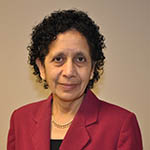 Syamala Srinivasan has been a faculty of the Data Science program at Northwestern University since 2013. She teaches courses in Deep Learning, NLP, Machine Learning and Modeling. She has over 35 years of industrial and academic experience in data science. She has applied data science methods to solve business problems. Currently, Syamala is the Chief Analytics Officer at Tada Cognitive solutions, Inc. She is integrating AIML business solutions with the Tada platform. Prior to Tada, she worked for the US Army in predictive maintenance of ground vehicles, for 4 years. Before that, she worked at Caterpillar Inc., in various technical and management positions for 22 years. She started and developed the Department of Analytics and was the director of analytics before retiring from Caterpillar. She focused on developing and deploying analytical solutions to complex business problems in the entire value chain of product development, manufacturing, supply chain, marketing, sales, and human resources. She developed innovative techniques when solving complex business problems and received two U.S. patents. One of those patents was used to spin off a new startup company, called Akoya. It was one of the first Data Science companies. Akoya was then integrated into Birla soft, part of Birla Technologies Inc.
Syamala Srinivasan has been a faculty of the Data Science program at Northwestern University since 2013. She teaches courses in Deep Learning, NLP, Machine Learning and Modeling. She has over 35 years of industrial and academic experience in data science. She has applied data science methods to solve business problems. Currently, Syamala is the Chief Analytics Officer at Tada Cognitive solutions, Inc. She is integrating AIML business solutions with the Tada platform. Prior to Tada, she worked for the US Army in predictive maintenance of ground vehicles, for 4 years. Before that, she worked at Caterpillar Inc., in various technical and management positions for 22 years. She started and developed the Department of Analytics and was the director of analytics before retiring from Caterpillar. She focused on developing and deploying analytical solutions to complex business problems in the entire value chain of product development, manufacturing, supply chain, marketing, sales, and human resources. She developed innovative techniques when solving complex business problems and received two U.S. patents. One of those patents was used to spin off a new startup company, called Akoya. It was one of the first Data Science companies. Akoya was then integrated into Birla soft, part of Birla Technologies Inc.
Srinivasan has a Ph.D. and M.S. in Statistics from Colorado State University. She also received a M.S. and a B.S in Mathematics from India.
Her prior academic appointments include National Louis University, Bradley University, Chicago State University, Northern Illinois University, and Colorado State University. She has been teaching 401, 410, 422, 450, 453 and 458 at Northwestern University.
Contact Information
Education
PhD in Statistics, Colorado State University
MS in Statistics, Colorado State University
MS in Mathematics, Thiagarajar College, India
Leadership Certificate, Wharton School of Business & Kellogg School of Business
Relevant Work
Adjunct Faculty – Northwestern University (2013 – Present)
Chief Data Scientist – CGN Global Inc. (2011 – Present)
Principle Data Scientist – HBM nCode Federal LLC. (2017 – 2020)
Director of Analytics – Caterpillar Inc. (1989 – 2011)
Senior Data Scientist – Ecolab Inc. (1988 – 1989)
Assistant Professor – Northern Illinois University (1986 – 1987)
Selected Publications and Products
“Anomaly detection for multivariate time series data using Machine Learning methods” (presented at the Army Operations Research Symposium, October 2019)
"Probabilistic Design Methodology – A new approach for accurate predictive models" (presented at the 3rd Annual Probabilistic Methods Conference, June 2003).
"Reliability Prediction of Systems & Components – A new multidisciplinary approach" (presented 2nd Annual Probabilistic Methods Conference, June 2002).
"Business Applications using Data Mining Technology" (presented at the CIO conference sponsored by the Business School of University of Michigan, Oct 1999).
"Probabilistic Design Using Design of Experiments" (presented at the 7th Annual SAE - RMS Workshop in May, 1995).
"Probabilistic Modeling Using Response surface Methodology" (presented at the 45th Annual SAE - Earthmoving Industry Conference in 1994).
"Probabilistic Structural Analysis Methods" (presented at the 1993 Annual Meetings of the American statistical association).
"Confidence Intervals For Proportion of Total Variation in Unbalanced Two-Way Components of Variance Models using Unweighted Means" (published in Communications in Statistics: Theory and Methods, 1991, Vol. 20, No. 2, pp. 511 - 526).
"Establishing Reliability of Biomechanical Data using Univariate and Multivariate Approaches" (published in Research Quarterly for Exercise and Sport, 1990, Vol. 61, No. 2, pp.154 - 160).
"SPC for Batch processes" (presented at the 1989 Annual Meetings of the American Statistical Association).
"Confidence Intervals on Proportion of Total Variation due to error in two-way models" (presented at the 1988 Annual Meetings of the American Statistical Association).
Recent Courses
MSDS 401 Applied Statistics with R
MSDS 410 Supervised Learning Methods
MSDS 422 Practical Machine Learning
MSDS 450 Marketing Analytics
MSDS 453 Natural Language Processing
MSDS 458 Artificial Intelligence and Deep Learning
Irene Tsapara
 Dr. Irene Tsapara is a professor, researcher, and industry practitioner with over three decades of experience in artificial intelligence, data science, computational learning theory, and quantitative finance. She spent seventeen years in the financial industry as a financial engineer and senior quantitative analyst, developing trading algorithms, risk management simulations, volatility models, and automated portfolio analytics at Goldman Sachs (Hull Trading) and Hedge Fund Research.
Dr. Irene Tsapara is a professor, researcher, and industry practitioner with over three decades of experience in artificial intelligence, data science, computational learning theory, and quantitative finance. She spent seventeen years in the financial industry as a financial engineer and senior quantitative analyst, developing trading algorithms, risk management simulations, volatility models, and automated portfolio analytics at Goldman Sachs (Hull Trading) and Hedge Fund Research.
She has been teaching MSDS at Northwestern University since 2014. She has taught for more than 30 years at universities across the United States and Europe, including DePaul University, the University of Illinois at Chicago, and the University of Economics in Athens. She has developed and delivered graduate and doctoral-level instruction in artificial intelligence, machine learning, deep learning, predictive modeling, and applied mathematics. She is fluent in English and Greek and has working knowledge of French and Spanish.
Dr. Tsapara earned her PhD in Mathematical Computer Science from the University of Illinois, with a focus on computational learning theory and universal algebra. She also holds a Master’s degree in Computer Science from the University of Illinois and a Bachelor’s degree in Mathematics from the University of Patras.
In parallel with her academic work, she is the founder of Zygen Consulting Services, where she leads applied research and analytics initiatives in education data science, AI-driven decision systems, and curriculum design. Her current research interests include AI model optimization, large-scale predictive modeling, digital twins for intelligent systems, quantum-inspired methods, and domain-adapted large language models.
Contact Information
Research Interests
- ML Methods
- Quantum ML Computing
- Generative and Agentic AI integration models
Memberships
- Association for Computing Machinery
- American Mathematical Society
- American Studies Association
- American Society for Engineering Education
- Harvard Business Review Advisory Council
- IEEE Computer Society
- Royal Statistical Society
- Society for Industrial and Applied Mathematics
Recent Courses
- MSDS 401 Applied Statistics with R
- MSDS 402 Introduction to Data Science
- MSDS 460 Decision Analytics
Selected Publications
- Irene Tsapara. (June 22, 2026). The Vibe Shift in Data Science Education: Foundational Pathways for AI-Assisted Curriculum Design. ASEE.
- Irene Tsapara. (June 22, 2026). Designing for Supervision: Comparing Management Frameworks for Teaching Generative AI in Science, Technology, Mathematics, and Engineering. ASEE.
- Bryan, K. & Tsapara, I.. (March 14, 2026). Entity Resolution for Aircraft Type Matching on Heterogeneous Aviation Data Sources. IEEE Aerospace Conference.
- Hanson, S. & Tsapara, I.. (January 16, 2026). Scaling Keyword Tagging in Space Science: LLM-Driven Automation. AIAA SCITECH.
- Irene Tsapara. (November 06, 2025). AI at the turning point. Humane Technologist.
- Shaik, H. & Tsapara, I.. (October 16, 2025). Digital Twin Foliage Representation for Network Deployment Optimization. IDEA Digital Twins Conference.
- Hanson, S. & Tsapara, I.. (September 29, 2025). Effective knowledge discovery and management using LLMs with specific application in Lunar Dust research 76th International Astronautical Congress. (IAC 2025), Sydney, Australia, IAC-25-D5,2,2, x103.
- Mark Marino, Irene Tsapara. (August 10, 2018). Math learning and history of mathematics. SCGM.
- Martina Bode, Jenny Ross, Irene Tsapara. (July 10, 2018). Online grading platforms: Improve quality and efficiency of grading. EDULEARN.
- Irene Tsapara. (July 15, 1998). Learning atomic formulas with prescribed properties. COLT.
- Irene Tsapara. (December 17, 1997). On the learnability of atomic formulas. University of Chicago.
- Irene Tsapara. (n.d.). On the construction of asset-weighted indices for hedge funds classified by strategy. HFR Report.
- Irene Tsapara. (n.d.). A taxonomy of datasets based on their shape and other characteristics.
Selected Presentations
- (2025-10-16). Digital Twin Foliage Representation for Network Deployment Optimization. Shaik, H. & Tsapara, I. Germany.
- (2025-06-21). The Future of Education in the Era of AI. NU
- (2025-04-25). Dynamic Work, Dynamic Technology: Exploring the Relationship Between Innovative Leadership and Generative AI. NU, San Diego.
- (2024-04-15). AI about, with, and beyond. San Diego, CA.
- (2023-10-10). AI – Sentience and anthropomorphism. Chicago, IL.
- (2023-10-06). “Advancing Your AI Career: The Good, the Bad, and the Ugly.”. Bradley, Candice, Irene Tsapara, and Alianna J. Maren. Chicago.
- (2018-07-10). Online grading platforms: Improve quality and efficiency of grading. Barcelona, Spain.
- (2017-03-10). The use of phones, tablets, and technology in the classroom. Chicago, IL.
- (2016-08-10). The future of prediction: How it affects our privacy. Chicago, IL.
- (2015-12-10). Gardner’s multiple intelligences in the math classroom. NYIT, Athens, Greece.
- (1997-08-03). Learning atomic formulas with prescribed properties. Madison, WI.
Philip Waggoner
 Philip Waggoner is the Director of Data Science at YouGov America. Waggoner is also a research scholar at Columbia University, and an adjunct professor of data science at several schools. He has published widely, including two books with Cambridge University Press, on computational social science, responsible automated decision making, experimental design, and open-source statistical computing. Prior to entering industry as a data scientist, Waggoner was a member of the computational social science faculty at the University of Chicago and before that, the College of William & Mary. For more information, visit his site: https://pdwaggoner.github.io.
Philip Waggoner is the Director of Data Science at YouGov America. Waggoner is also a research scholar at Columbia University, and an adjunct professor of data science at several schools. He has published widely, including two books with Cambridge University Press, on computational social science, responsible automated decision making, experimental design, and open-source statistical computing. Prior to entering industry as a data scientist, Waggoner was a member of the computational social science faculty at the University of Chicago and before that, the College of William & Mary. For more information, visit his site: https://pdwaggoner.github.io.
Donald Wedding
 Donald Wedding has over two decades of experience in the field of Data Science. He has worked in a variety of industries including banking, insurance, telecom, retail, sales, and consulting. Wedding has worked as both practitioner and manager of Data Science teams that have developed many different model types such as predictive models, cluster analysis, time series, and natural language processing. He is experienced in Python, SAS, and R programming. He currently is an independent consultant for his own company, DKW Analytics LLC, where he develops predictive models for companies based in both the United States and overseas. Wedding joined the faculty of Northwestern in 2013 as an adjunct lecturer. During his tenure, he has taught and developed many classes.
Donald Wedding has over two decades of experience in the field of Data Science. He has worked in a variety of industries including banking, insurance, telecom, retail, sales, and consulting. Wedding has worked as both practitioner and manager of Data Science teams that have developed many different model types such as predictive models, cluster analysis, time series, and natural language processing. He is experienced in Python, SAS, and R programming. He currently is an independent consultant for his own company, DKW Analytics LLC, where he develops predictive models for companies based in both the United States and overseas. Wedding joined the faculty of Northwestern in 2013 as an adjunct lecturer. During his tenure, he has taught and developed many classes.
Contact Information
Education
PhD Engineering Systems (Machine Learning/AI), University of Toledo
MS Engineering Science (Statistics/Machine Learning), University of Toledo
MS Data Mining, Central Connecticut State University
MS Management, University of Akron
BS Electrical Engineering (Software Development), University of Toledo
Relevant Work
DKW Analytics, LLC – Owner (2018-Present)
Northwestern University – Instructor (2013-Present)
Sprint Corporation – Director of Data Science (2016-2018)
SAS Institute – Advanced Analytic Consultant (2007-2016)
Progressive Insurance – Product Manager of Data Science (2005-2007)
Key Bank Corporation – VP of Strategic Analytics (1999-2005)
Recent Courses
MSDS 498 Capstone
MSDS 422 Practical Machine Learning
MSDS 401 Applied Statistics with R
 Tom Miller is the faculty director of the data science program at Northwestern University. He started with the program in 2011 when it was called predictive analytics and has been responsible for growing the curriculum, introducing specializations, and designing numerous distance learning courses. Miller is the author of six textbooks about data science published by Pearson Education. He also owns Research Publishers LLC, a California book publisher and provider of research and consulting services.
Tom Miller is the faculty director of the data science program at Northwestern University. He started with the program in 2011 when it was called predictive analytics and has been responsible for growing the curriculum, introducing specializations, and designing numerous distance learning courses. Miller is the author of six textbooks about data science published by Pearson Education. He also owns Research Publishers LLC, a California book publisher and provider of research and consulting services. Abid Ali has worked in consulting and product companies over the years. He has several years of international consulting experience leading, designing, and delivering large-scale data and reporting solutions in the U.S., Great Britain, Europe, and Asia Pacific. He is experienced in various industries such as retail, insurance, finance, banking, telecom, and travel. He specializes in data architecture design and implementation, data warehousing and business intelligence, and advanced analytics. He is a perpetual learner and has acquired multiple advanced degrees over the years and several certifications. He also teaches in the Master of Analytics program at University of Chicago and has taught at Columbia University in their Master of Applied analytics program. He delivers guest lectures in different universities and joins different panels on data topics. He believes in sharing knowledge and cares deeply about sustainability goals.
Abid Ali has worked in consulting and product companies over the years. He has several years of international consulting experience leading, designing, and delivering large-scale data and reporting solutions in the U.S., Great Britain, Europe, and Asia Pacific. He is experienced in various industries such as retail, insurance, finance, banking, telecom, and travel. He specializes in data architecture design and implementation, data warehousing and business intelligence, and advanced analytics. He is a perpetual learner and has acquired multiple advanced degrees over the years and several certifications. He also teaches in the Master of Analytics program at University of Chicago and has taught at Columbia University in their Master of Applied analytics program. He delivers guest lectures in different universities and joins different panels on data topics. He believes in sharing knowledge and cares deeply about sustainability goals. Edward Arroyo has worked for both on-ground and online universities in a variety of capacities during the last twenty years. During that period, he has taught undergraduate and graduate mathematics courses as well as undergraduate programming and theoretical computer science courses. In addition, he worked for several years outside of academia as a test engineer for a digital media company. His research interests and publications are in the areas of combinatorics, data science and image reconstruction algorithms in computerized and discrete tomography. He holds a Ph.D. in pure mathematics from the Graduate School and University Center of CUNY.
Edward Arroyo has worked for both on-ground and online universities in a variety of capacities during the last twenty years. During that period, he has taught undergraduate and graduate mathematics courses as well as undergraduate programming and theoretical computer science courses. In addition, he worked for several years outside of academia as a test engineer for a digital media company. His research interests and publications are in the areas of combinatorics, data science and image reconstruction algorithms in computerized and discrete tomography. He holds a Ph.D. in pure mathematics from the Graduate School and University Center of CUNY. Atef Bader received his Ph.D. in computer science from IIT in 1997 and has been working in the IT field, academic and industry, for many years. His expertise spans multiple areas in the computer science discipline: software engineering, object-oriented, real-time, parallel, and functional programming paradigms, multithreaded CPU and GPU architectures, design and analysis of algorithms, expert systems, artificial intelligence, neural networks, machine learning, graph theory, exploratory data analysis and database systems.
Atef Bader received his Ph.D. in computer science from IIT in 1997 and has been working in the IT field, academic and industry, for many years. His expertise spans multiple areas in the computer science discipline: software engineering, object-oriented, real-time, parallel, and functional programming paradigms, multithreaded CPU and GPU architectures, design and analysis of algorithms, expert systems, artificial intelligence, neural networks, machine learning, graph theory, exploratory data analysis and database systems. Shreenidhi Bharadwaj is an educator, data enthusiast and an analytics practitioner. Currently, as M&A COE lead, he advises Private Equity/Venture Capital firms and C-level Executives on value creation, post-close synergies along with data & analytics(BI/AI) strategies focused on business outcomes.
Shreenidhi Bharadwaj is an educator, data enthusiast and an analytics practitioner. Currently, as M&A COE lead, he advises Private Equity/Venture Capital firms and C-level Executives on value creation, post-close synergies along with data & analytics(BI/AI) strategies focused on business outcomes. Chad R. Bhatti is a PhD Statistician with an interest in computational statistics and modeling. Bhatti has spent time in both academia and industry with over a decade of experience in each environment. He has been a research faculty at both Rice University and Tulane University, and a member of the MSDS faculty since the very first quarter of operation. His academic research experience was in financial econometrics, in particular the modeling of market microstructure tick or TAQ data. Over the last decade Bhatti has been working in industry developing proprietary data intelligence and predictive models for a variety of banking applications related to risk, underwriting, marketing, and operations.
Chad R. Bhatti is a PhD Statistician with an interest in computational statistics and modeling. Bhatti has spent time in both academia and industry with over a decade of experience in each environment. He has been a research faculty at both Rice University and Tulane University, and a member of the MSDS faculty since the very first quarter of operation. His academic research experience was in financial econometrics, in particular the modeling of market microstructure tick or TAQ data. Over the last decade Bhatti has been working in industry developing proprietary data intelligence and predictive models for a variety of banking applications related to risk, underwriting, marketing, and operations. Dan Baumgartner is an independent management consultant with over 30 years of business process management and information technology work experience, primarily as a partner with management consulting firms. His career spans various leadership roles in management and information technology consulting services. He has proven expertise and extensive experience with improving business processes, developing IT strategies and plans, leading the implementation of IT solutions to address business issues, and selecting/implementing enterprise-wide software applications. In addition, Baumgartner has managed client business analysts, functional managers and software development resources to transform the business and implement the desired business solution.
Dan Baumgartner is an independent management consultant with over 30 years of business process management and information technology work experience, primarily as a partner with management consulting firms. His career spans various leadership roles in management and information technology consulting services. He has proven expertise and extensive experience with improving business processes, developing IT strategies and plans, leading the implementation of IT solutions to address business issues, and selecting/implementing enterprise-wide software applications. In addition, Baumgartner has managed client business analysts, functional managers and software development resources to transform the business and implement the desired business solution. Moses Boudourides is in the Faculty of Northwestern University School of Professional Studies (SPS) Data Science Program and Affiliated Faculty at the Science of Networks in Communities (SONIC) at Northwestern University. In 2021-2, starting end of August 2021, he will be visiting Haverford College Department of Computer Science.
Moses Boudourides is in the Faculty of Northwestern University School of Professional Studies (SPS) Data Science Program and Affiliated Faculty at the Science of Networks in Communities (SONIC) at Northwestern University. In 2021-2, starting end of August 2021, he will be visiting Haverford College Department of Computer Science. Candice Bradley is a quantitative social scientist with over two decades experience teaching statistics and research methods at the graduate level. Trained at UC Irvine’s interdisciplinary Social Relations program, Bradley followed her doctoral studies with a Fulbright Fellowship to Africa, engaging in fieldwork documenting the start of Kenya’s fertility decline. As a quantitative anthropologist, a rather rare specialization in a discipline not known for number crunching, Bradley has published research using multivariate analyses in such areas as demography, academic advancement of women, cross-cultural methodology, deep ecology, and time allocation. Bradley earned her PhD and masters from UC Irvine in social sciences.
Candice Bradley is a quantitative social scientist with over two decades experience teaching statistics and research methods at the graduate level. Trained at UC Irvine’s interdisciplinary Social Relations program, Bradley followed her doctoral studies with a Fulbright Fellowship to Africa, engaging in fieldwork documenting the start of Kenya’s fertility decline. As a quantitative anthropologist, a rather rare specialization in a discipline not known for number crunching, Bradley has published research using multivariate analyses in such areas as demography, academic advancement of women, cross-cultural methodology, deep ecology, and time allocation. Bradley earned her PhD and masters from UC Irvine in social sciences. Anil Chaturvedi has over 35 years of professional experience at companies such as AT&T Bell Labs, Kraft Foods, Capital One, and Accenture. He has provided consulting services to Bank of America, Fannie Mae, Johnson & Johnson, and Procter & Gamble. His general research interests include enhancing business value using data science. He has patented and published advanced algorithms for predictive modeling, market segmentation, new product development, product positioning, customer loyalty, consumer promotion mix optimization, and brand strategy. He earned his PhD from Rutgers University and an MBA from IIM Ahmedabad, India.
Anil Chaturvedi has over 35 years of professional experience at companies such as AT&T Bell Labs, Kraft Foods, Capital One, and Accenture. He has provided consulting services to Bank of America, Fannie Mae, Johnson & Johnson, and Procter & Gamble. His general research interests include enhancing business value using data science. He has patented and published advanced algorithms for predictive modeling, market segmentation, new product development, product positioning, customer loyalty, consumer promotion mix optimization, and brand strategy. He earned his PhD from Rutgers University and an MBA from IIM Ahmedabad, India. Kimberly Chulis has over 25 years of professional advanced analytics experience and has demonstrated analytic expertise on projects at numerous companies and industries, including WellPoint, HCSC, UHG, Microsoft, IBM, Dell, Accenture, Ogilvy, Sprint/Nextel, Commonwealth Edison, TXU, Eloyalty, Allstate, Cendant, CapGemini and others across a multitude of industries. Her current focus is on applications of data science to measure customer brand loyalty across social and digital channels. Other research revolves around social media as a platform to drive positive public health, disease-related community support, early detection and intervention for healthcare outcomes. Chulis holds a PhD from Purdue University's Health and Human Sciences Consumer Behavior program, and a masters degree in economics with a focus on health economics and econometrics from UIC. She is in her 7th year as faculty in the MS Data Science program at Northwestern University, and served as Director, Business Analytics Certificate Program at University of Chicago Graham School. Chulis co-founded the company in 2001 and is CEO of Core Analytics® and the BrandMeter* Architect.
Kimberly Chulis has over 25 years of professional advanced analytics experience and has demonstrated analytic expertise on projects at numerous companies and industries, including WellPoint, HCSC, UHG, Microsoft, IBM, Dell, Accenture, Ogilvy, Sprint/Nextel, Commonwealth Edison, TXU, Eloyalty, Allstate, Cendant, CapGemini and others across a multitude of industries. Her current focus is on applications of data science to measure customer brand loyalty across social and digital channels. Other research revolves around social media as a platform to drive positive public health, disease-related community support, early detection and intervention for healthcare outcomes. Chulis holds a PhD from Purdue University's Health and Human Sciences Consumer Behavior program, and a masters degree in economics with a focus on health economics and econometrics from UIC. She is in her 7th year as faculty in the MS Data Science program at Northwestern University, and served as Director, Business Analytics Certificate Program at University of Chicago Graham School. Chulis co-founded the company in 2001 and is CEO of Core Analytics® and the BrandMeter* Architect. Kathryn Daugherty is an analytics professional with more than a decade of experience leveraging data to improve business performance. She currently manages a data and analytics team at AdventHealth Information Technology. Previously, Daugherty provided pricing guidance for restaurants and retailers. She began her career in finance, supporting banking, defense and lodging industries. She received her MS in predictive analytics from Northwestern University, her MBA with specializations in finance and management from Rollins College and a BA in economics from the University of Colorado at Boulder. Daugherty is certified in project management (PMP), lean, six sigma, AWS and restaurant revenue management.
Kathryn Daugherty is an analytics professional with more than a decade of experience leveraging data to improve business performance. She currently manages a data and analytics team at AdventHealth Information Technology. Previously, Daugherty provided pricing guidance for restaurants and retailers. She began her career in finance, supporting banking, defense and lodging industries. She received her MS in predictive analytics from Northwestern University, her MBA with specializations in finance and management from Rollins College and a BA in economics from the University of Colorado at Boulder. Daugherty is certified in project management (PMP), lean, six sigma, AWS and restaurant revenue management. John Derwent is an experienced learning professional with an analytical bent and is currently a program advisor for the Data Science and Visualization Bootcamp program and adjunct faculty with the Masters of Science in Data Science program at Northwestern University. After completing his graduate work, he moved into the world of corporate education and development practicing in the software and technology industries before moving on to a position with a management consulting firm. Most recently, he co-leads the learning group for a consulting and product development team focused on Artificial Intelligence and Data Science applications to the business world. His main professional goal is to help people understand how mathematics can improve businesses and the world. He earned his PhD at Northwestern University in Applied Mathematics.
John Derwent is an experienced learning professional with an analytical bent and is currently a program advisor for the Data Science and Visualization Bootcamp program and adjunct faculty with the Masters of Science in Data Science program at Northwestern University. After completing his graduate work, he moved into the world of corporate education and development practicing in the software and technology industries before moving on to a position with a management consulting firm. Most recently, he co-leads the learning group for a consulting and product development team focused on Artificial Intelligence and Data Science applications to the business world. His main professional goal is to help people understand how mathematics can improve businesses and the world. He earned his PhD at Northwestern University in Applied Mathematics. Sharon Dill has been teaching at Northwestern University in the data science program since 2018. She is a graduate of the program where she received her M.S. in June 2017. She worked her entire career in Information Technology where she started off as a programmer and then worked her way up the ladder to Chief Information Officer and then Chief Data Officer. Dill brings her experience in the business world to the classroom where she is able to help students connect what they are learning to their current workplace and to their future careers in data science.
Sharon Dill has been teaching at Northwestern University in the data science program since 2018. She is a graduate of the program where she received her M.S. in June 2017. She worked her entire career in Information Technology where she started off as a programmer and then worked her way up the ladder to Chief Information Officer and then Chief Data Officer. Dill brings her experience in the business world to the classroom where she is able to help students connect what they are learning to their current workplace and to their future careers in data science. Carrie Dugan is the Course Lead for MSDS 400 for Northwestern University. She has been teaching and developing courses for the program since the fall of 2014. Dugan began her career as an actuary then switched to teaching in higher education in 2000 and has been teaching solely online since 2008. She has taught a wide variety of undergraduate and graduate-level courses at various universities including MSDS 400, MSDS 430, and MSDS 460 at Northwestern and she has also developed several courses for online delivery including MSDS 400 and MSDS 430. Dugan is most interested in the uses and relevance of mathematics and programming in data science and current trends in the industry.
Carrie Dugan is the Course Lead for MSDS 400 for Northwestern University. She has been teaching and developing courses for the program since the fall of 2014. Dugan began her career as an actuary then switched to teaching in higher education in 2000 and has been teaching solely online since 2008. She has taught a wide variety of undergraduate and graduate-level courses at various universities including MSDS 400, MSDS 430, and MSDS 460 at Northwestern and she has also developed several courses for online delivery including MSDS 400 and MSDS 430. Dugan is most interested in the uses and relevance of mathematics and programming in data science and current trends in the industry. Phil Goldfeder has been involved with MSDS/MSPA since its inception. He has created, edited and taught multiple courses, and taken on several roles within the program. His prior work was as a management consultant with Booz & Company (formerly Booz·Allen and Hamilton, Inc), specializing in mergers and acquisitions, followed by over two decades in both classroom and online education. He has been published in Journal of Phys. Chemistry B, Mathematical Problems in Engineering, Journal of Engineering Mathematics, and Graziadio Business Review, as well as several chapters in the Macmillan Science Library. Goldfeder has taught many subjects and disciplines to all types of learners, ranging from grade school through the doctoral level, in both traditional and online settings, and is an internationally recognized expert in online education. He is a faculty advisor to the Student Leadership Council and sits on the editorial board of Data Science Quarterly. He lives in the Chicagoland area with his wife and sons.
Phil Goldfeder has been involved with MSDS/MSPA since its inception. He has created, edited and taught multiple courses, and taken on several roles within the program. His prior work was as a management consultant with Booz & Company (formerly Booz·Allen and Hamilton, Inc), specializing in mergers and acquisitions, followed by over two decades in both classroom and online education. He has been published in Journal of Phys. Chemistry B, Mathematical Problems in Engineering, Journal of Engineering Mathematics, and Graziadio Business Review, as well as several chapters in the Macmillan Science Library. Goldfeder has taught many subjects and disciplines to all types of learners, ranging from grade school through the doctoral level, in both traditional and online settings, and is an internationally recognized expert in online education. He is a faculty advisor to the Student Leadership Council and sits on the editorial board of Data Science Quarterly. He lives in the Chicagoland area with his wife and sons.

 Alexander Kline is a leader capable of thriving in stressful environments with experience in Operations Research as well as combat operations in the US Army. He has led analytical efforts supporting finance, manpower, national defense, military operations, and resource allocation. His expertise lies in the design, implementation, and analysis of algorithms to solve complex problems. Kline has given lectures on Missile Defense research, heuristic and metaheuristic algorithms, multivariate analysis, and queueing theory. He has published articles in peer-reviewed journals and in conference proceedings, and has several additional articles in some phase of the publication process. Kline believes in focused perseverance and he is committed to excellence in all that he does.
Alexander Kline is a leader capable of thriving in stressful environments with experience in Operations Research as well as combat operations in the US Army. He has led analytical efforts supporting finance, manpower, national defense, military operations, and resource allocation. His expertise lies in the design, implementation, and analysis of algorithms to solve complex problems. Kline has given lectures on Missile Defense research, heuristic and metaheuristic algorithms, multivariate analysis, and queueing theory. He has published articles in peer-reviewed journals and in conference proceedings, and has several additional articles in some phase of the publication process. Kline believes in focused perseverance and he is committed to excellence in all that he does. Alianna J. Maren is a researcher and thought-leader in predictive analytics, with four patents, ranging from predictive analytics to knowledge discovery to sensor fusion (the latter was named as Patent of the Week by the New York Times shortly after it was awarded). Her expertise ranges from statistical thermodynamics to model patterns and rapidly-changing systems to text analytics in knowledge discovery to neural networks. As cofounder and chief scientist with EagleForce Associates (later Viziant Corporation), she was key in supporting DIA's panels on knowledge discovery and predictive analytics. Her innovative work at Viziant led to three of her four patent awards and two rounds of investment funding. As senior scientist with Accurate Automation Corporation, Maren's innovations in neural networks, sensor fusion, and system identification were the basis for receiving over $3.4M in federally-funded SBIR and STTR contracts. She introduced and taught the first course in Knowledge Discovery at Georgetown University, and also Cloud Computing at both George Mason and Marymount Universities Her first book, the “Handbook of Neural Computing Applications” (Academic, 1990), became a landmark in the emerging neural network arena. Maren holds a Ph.D. in physical chemistry from Arizona State University and a bachelor's degree in mathematics from the University of North Dakota.
Alianna J. Maren is a researcher and thought-leader in predictive analytics, with four patents, ranging from predictive analytics to knowledge discovery to sensor fusion (the latter was named as Patent of the Week by the New York Times shortly after it was awarded). Her expertise ranges from statistical thermodynamics to model patterns and rapidly-changing systems to text analytics in knowledge discovery to neural networks. As cofounder and chief scientist with EagleForce Associates (later Viziant Corporation), she was key in supporting DIA's panels on knowledge discovery and predictive analytics. Her innovative work at Viziant led to three of her four patent awards and two rounds of investment funding. As senior scientist with Accurate Automation Corporation, Maren's innovations in neural networks, sensor fusion, and system identification were the basis for receiving over $3.4M in federally-funded SBIR and STTR contracts. She introduced and taught the first course in Knowledge Discovery at Georgetown University, and also Cloud Computing at both George Mason and Marymount Universities Her first book, the “Handbook of Neural Computing Applications” (Academic, 1990), became a landmark in the emerging neural network arena. Maren holds a Ph.D. in physical chemistry from Arizona State University and a bachelor's degree in mathematics from the University of North Dakota. William T. (Bill) Mickelson is an applied social science statistician and statistical consultant with over 35 years of experience in both academia and industry. Mickelson has taught across the spectrum of research and statistical topics, including courses in mathematical and stochastic modeling, general linear statistical models, response surface methods, multivariate statistical methods, and linear and non-linear optimization. He is deeply involved with statistics education and the promoting of statistical reasoning, thinking, and literacy. He has also maintained a statistical consulting practice with clients primarily in Health Care, state and local government, health and fitness, transportation, insurance, banking and finance, and Higher Education.
William T. (Bill) Mickelson is an applied social science statistician and statistical consultant with over 35 years of experience in both academia and industry. Mickelson has taught across the spectrum of research and statistical topics, including courses in mathematical and stochastic modeling, general linear statistical models, response surface methods, multivariate statistical methods, and linear and non-linear optimization. He is deeply involved with statistics education and the promoting of statistical reasoning, thinking, and literacy. He has also maintained a statistical consulting practice with clients primarily in Health Care, state and local government, health and fitness, transportation, insurance, banking and finance, and Higher Education. Melvin Ott is owner and president of Melvin Ott & Associates, LLC, a statistical and economic consulting firm. He has made presentations for private companies on predictive modeling in health care, banking, and market research. Ott has worked with predictive models for more than thirty years. He holds a PhD in statistics from Oregon State University and a master’s degree in mathematics from Utah State University. His consulting practice is focused upon applications in health care payment methodologies and expert witness testimony plus adjunct teaching at several universities in statistics, mathematics and market research. Previously Ott was director of Research and Database for Ingenix, Inc., Director for Data Management at a large medical center (responsible for SAS online access to the medical center data and performed the survival analysis for the kidney transplant program) and was a Director for Reimbursement for a Blue Shield plan. He is a Python programmer, SAS programmer and Visual Basic programmer with online logistic regression and simulation applications.
Melvin Ott is owner and president of Melvin Ott & Associates, LLC, a statistical and economic consulting firm. He has made presentations for private companies on predictive modeling in health care, banking, and market research. Ott has worked with predictive models for more than thirty years. He holds a PhD in statistics from Oregon State University and a master’s degree in mathematics from Utah State University. His consulting practice is focused upon applications in health care payment methodologies and expert witness testimony plus adjunct teaching at several universities in statistics, mathematics and market research. Previously Ott was director of Research and Database for Ingenix, Inc., Director for Data Management at a large medical center (responsible for SAS online access to the medical center data and performed the survival analysis for the kidney transplant program) and was a Director for Reimbursement for a Blue Shield plan. He is a Python programmer, SAS programmer and Visual Basic programmer with online logistic regression and simulation applications. Jamie Riggs joined SPS in the "predictive analytics" era of the program, teaching then, as now, classes in statistics and statistical modeling. She redeveloped the time series analysis and forecasting course to include both classical and nonlinear models. She is the author of a handbook for advanced modeling published by Cambridge University Press. She regularly provides statistical consulting primarily for astronomers and planetary scientists. Riggs has provided statistical input to researchers using NASA's New Horizons probe data for Pluto, Charon, and Arrokoth. She is an associate editor of Frontiers in Astronomy and Space Sciences which publishes peer-reviewed research in specialties including cosmology, extragalactic astronomy, solar physics, and planetary science.
Jamie Riggs joined SPS in the "predictive analytics" era of the program, teaching then, as now, classes in statistics and statistical modeling. She redeveloped the time series analysis and forecasting course to include both classical and nonlinear models. She is the author of a handbook for advanced modeling published by Cambridge University Press. She regularly provides statistical consulting primarily for astronomers and planetary scientists. Riggs has provided statistical input to researchers using NASA's New Horizons probe data for Pluto, Charon, and Arrokoth. She is an associate editor of Frontiers in Astronomy and Space Sciences which publishes peer-reviewed research in specialties including cosmology, extragalactic astronomy, solar physics, and planetary science. Nethra Sambamoorthi has been working in the Data Intelligence and Data Sciences field for 30+ years. He is a recognized expert in Data Engineering, Advanced Predictive Modeling, Machine Learning, and building teams/organizations to deliver data science solutions. He writes and publishes both technical and popular presentations. The diversity of talents he feels he needs to manage his operations is well captured by the types of courses he developed/taught around the world. They are Analytics Entrepreneurship, Analytics Consulting, Capstone 498, Introduction to Predictive Science, Supervised Algorithms, Unsupervised algorithms, Machine Learning and Automation, Business Opportunities, and Statistical Methods. He has also worked in diverse industries such as health, financial services, education, and developmental activities, such as SaaS products. Sambamoorthi earned a Ph.D. in Statistics from the University of Pittsburgh. He lives in Dallas - Fort Worth area, transitioning to the Texas lifestyle, after having lived in the northeast for many years.
Nethra Sambamoorthi has been working in the Data Intelligence and Data Sciences field for 30+ years. He is a recognized expert in Data Engineering, Advanced Predictive Modeling, Machine Learning, and building teams/organizations to deliver data science solutions. He writes and publishes both technical and popular presentations. The diversity of talents he feels he needs to manage his operations is well captured by the types of courses he developed/taught around the world. They are Analytics Entrepreneurship, Analytics Consulting, Capstone 498, Introduction to Predictive Science, Supervised Algorithms, Unsupervised algorithms, Machine Learning and Automation, Business Opportunities, and Statistical Methods. He has also worked in diverse industries such as health, financial services, education, and developmental activities, such as SaaS products. Sambamoorthi earned a Ph.D. in Statistics from the University of Pittsburgh. He lives in Dallas - Fort Worth area, transitioning to the Texas lifestyle, after having lived in the northeast for many years. A CFA charter holder and ex-hedge fund quant, Deep Sanyal is the co-founder and ceo of dōnō consulting, a boutique quantitative research and financial modeling firm, and propmath.com, a proptech start-up which uses algorithms to improve transparency in real estate markets in emerging economies.
A CFA charter holder and ex-hedge fund quant, Deep Sanyal is the co-founder and ceo of dōnō consulting, a boutique quantitative research and financial modeling firm, and propmath.com, a proptech start-up which uses algorithms to improve transparency in real estate markets in emerging economies. Mark Schumacher, a seasoned professional with 20 years of experience at Accenture and EY, combines corporate expertise with a background in education. As a former finance executive and operations strategist, he brings a unique perspective to the MSDS program.
Mark Schumacher, a seasoned professional with 20 years of experience at Accenture and EY, combines corporate expertise with a background in education. As a former finance executive and operations strategist, he brings a unique perspective to the MSDS program. Dr. Jennifer Sleeman has over 11 years of machine learning experience and over 21 years of software engineering experience, in both academic and government/industry settings. Her research is primarily centered around generative models, natural language processing, semantic representation and deep learning.
Dr. Jennifer Sleeman has over 11 years of machine learning experience and over 21 years of software engineering experience, in both academic and government/industry settings. Her research is primarily centered around generative models, natural language processing, semantic representation and deep learning. Brad Smith currently works as a Player Development Analyst for a professional baseball organization. Previously, he served as the assistant director of sports analytics and a research assistant in the Brain, Behavior, and Emotion Lab at the University of Nebraska-Lincoln.
Brad Smith currently works as a Player Development Analyst for a professional baseball organization. Previously, he served as the assistant director of sports analytics and a research assistant in the Brain, Behavior, and Emotion Lab at the University of Nebraska-Lincoln. Syamala Srinivasan has been a faculty of the Data Science program at Northwestern University since 2013. She teaches courses in Deep Learning, NLP, Machine Learning and Modeling. She has over 35 years of industrial and academic experience in data science. She has applied data science methods to solve business problems. Currently, Syamala is the Chief Analytics Officer at Tada Cognitive solutions, Inc. She is integrating AIML business solutions with the Tada platform. Prior to Tada, she worked for the US Army in predictive maintenance of ground vehicles, for 4 years. Before that, she worked at Caterpillar Inc., in various technical and management positions for 22 years. She started and developed the Department of Analytics and was the director of analytics before retiring from Caterpillar. She focused on developing and deploying analytical solutions to complex business problems in the entire value chain of product development, manufacturing, supply chain, marketing, sales, and human resources. She developed innovative techniques when solving complex business problems and received two U.S. patents. One of those patents was used to spin off a new startup company, called Akoya. It was one of the first Data Science companies. Akoya was then integrated into Birla soft, part of Birla Technologies Inc.
Syamala Srinivasan has been a faculty of the Data Science program at Northwestern University since 2013. She teaches courses in Deep Learning, NLP, Machine Learning and Modeling. She has over 35 years of industrial and academic experience in data science. She has applied data science methods to solve business problems. Currently, Syamala is the Chief Analytics Officer at Tada Cognitive solutions, Inc. She is integrating AIML business solutions with the Tada platform. Prior to Tada, she worked for the US Army in predictive maintenance of ground vehicles, for 4 years. Before that, she worked at Caterpillar Inc., in various technical and management positions for 22 years. She started and developed the Department of Analytics and was the director of analytics before retiring from Caterpillar. She focused on developing and deploying analytical solutions to complex business problems in the entire value chain of product development, manufacturing, supply chain, marketing, sales, and human resources. She developed innovative techniques when solving complex business problems and received two U.S. patents. One of those patents was used to spin off a new startup company, called Akoya. It was one of the first Data Science companies. Akoya was then integrated into Birla soft, part of Birla Technologies Inc. Dr. Irene Tsapara is a professor, researcher, and industry practitioner with over three decades of experience in artificial intelligence, data science, computational learning theory, and quantitative finance. She spent seventeen years in the financial industry as a financial engineer and senior quantitative analyst, developing trading algorithms, risk management simulations, volatility models, and automated portfolio analytics at Goldman Sachs (Hull Trading) and Hedge Fund Research.
Dr. Irene Tsapara is a professor, researcher, and industry practitioner with over three decades of experience in artificial intelligence, data science, computational learning theory, and quantitative finance. She spent seventeen years in the financial industry as a financial engineer and senior quantitative analyst, developing trading algorithms, risk management simulations, volatility models, and automated portfolio analytics at Goldman Sachs (Hull Trading) and Hedge Fund Research. Philip Waggoner is the Director of Data Science at YouGov America. Waggoner is also a research scholar at Columbia University, and an adjunct professor of data science at several schools. He has published widely, including two books with Cambridge University Press, on computational social science, responsible automated decision making, experimental design, and open-source statistical computing. Prior to entering industry as a data scientist, Waggoner was a member of the computational social science faculty at the University of Chicago and before that, the College of William & Mary. For more information, visit his site: https://pdwaggoner.github.io.
Philip Waggoner is the Director of Data Science at YouGov America. Waggoner is also a research scholar at Columbia University, and an adjunct professor of data science at several schools. He has published widely, including two books with Cambridge University Press, on computational social science, responsible automated decision making, experimental design, and open-source statistical computing. Prior to entering industry as a data scientist, Waggoner was a member of the computational social science faculty at the University of Chicago and before that, the College of William & Mary. For more information, visit his site: https://pdwaggoner.github.io. Donald Wedding has over two decades of experience in the field of Data Science. He has worked in a variety of industries including banking, insurance, telecom, retail, sales, and consulting. Wedding has worked as both practitioner and manager of Data Science teams that have developed many different model types such as predictive models, cluster analysis, time series, and natural language processing. He is experienced in Python, SAS, and R programming. He currently is an independent consultant for his own company, DKW Analytics LLC, where he develops predictive models for companies based in both the United States and overseas. Wedding joined the faculty of Northwestern in 2013 as an adjunct lecturer. During his tenure, he has taught and developed many classes.
Donald Wedding has over two decades of experience in the field of Data Science. He has worked in a variety of industries including banking, insurance, telecom, retail, sales, and consulting. Wedding has worked as both practitioner and manager of Data Science teams that have developed many different model types such as predictive models, cluster analysis, time series, and natural language processing. He is experienced in Python, SAS, and R programming. He currently is an independent consultant for his own company, DKW Analytics LLC, where he develops predictive models for companies based in both the United States and overseas. Wedding joined the faculty of Northwestern in 2013 as an adjunct lecturer. During his tenure, he has taught and developed many classes.
